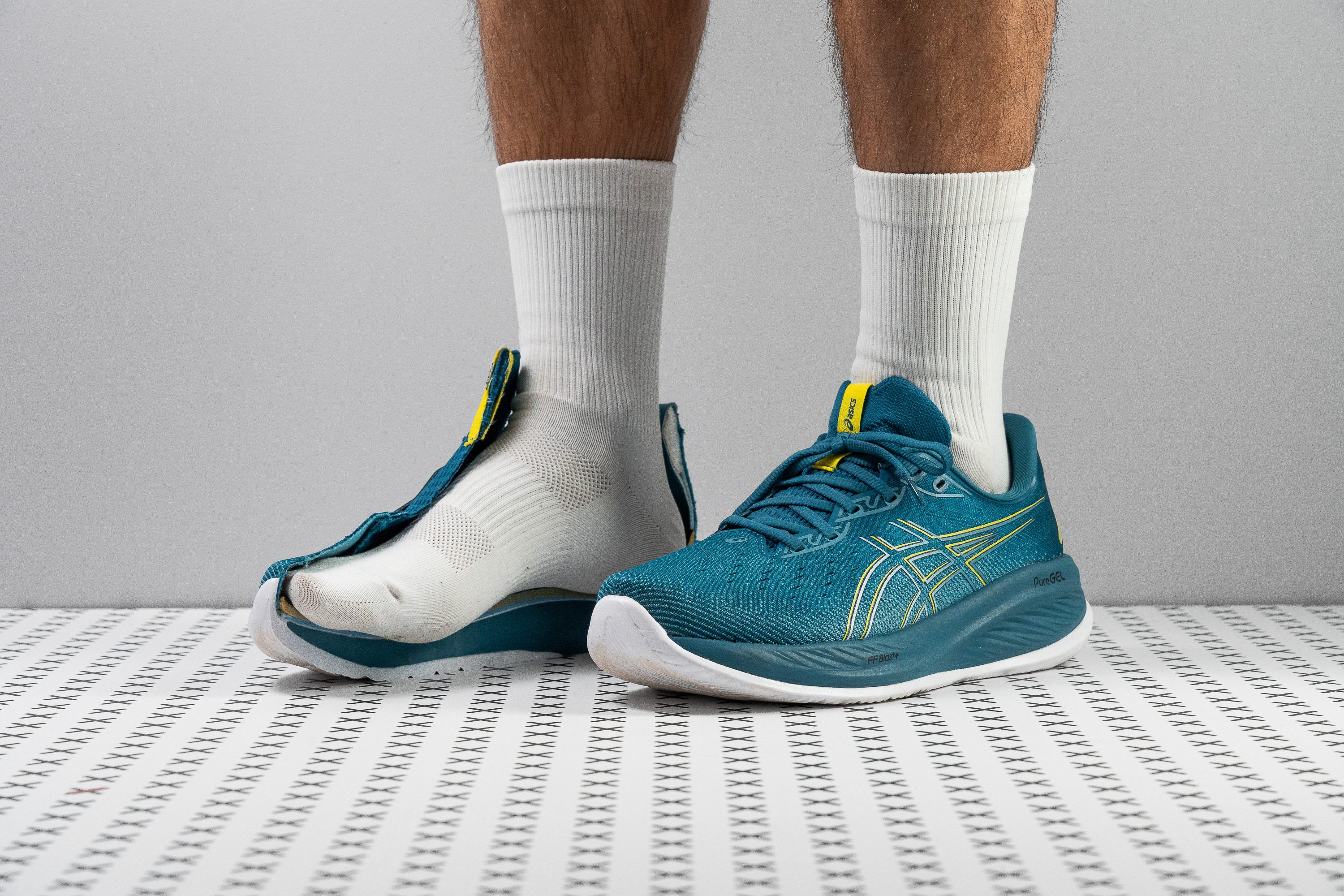Our verdict
Pros
- Great value
- Versatile across various paces
- Cushioned ride
- PureGEL heel insert
- Enhanced stability
- True all-rounder
- Lightweight for its category
Cons
- Outsole durability issues
- Limited traction off-road
- Lacks breathability
- Not bouncy at all
Audience verdict
- Top 30% in running shoes for beginners
Comparison
The most similar running shoes compared
+ + Add a shoe | |||||
|---|---|---|---|---|---|
| Audience score | 88 Great! | 88 Great! | 92 Superb! | 90 Superb! | |
| Price | £140 | £140 | £135 | £210 | |
| Pace | Daily running | Daily running | Daily runningTempo | Daily runningTempo | |
| Shock absorption | Moderate | High | High | Moderate | |
| Energy return | Low | Low | Moderate | High | |
| Traction | High | High | High | High | |
| Arch support | Neutral | Neutral | Neutral | Neutral | |
| Weight lab Weight brand | 9.1 oz / 259g 9 oz / 255g | 9.2 oz / 261g 9.3 oz / 265g | 9 oz / 254g 9 oz / 255g | 8.9 oz / 252g 8.8 oz / 250g | |
| Drop lab Drop brand | 8.2 mm 8.0 mm | 11.6 mm 8.0 mm | 7.4 mm 8.0 mm | 8.2 mm 8.0 mm | |
| Strike pattern | HeelMid/forefoot | Heel | Mid/forefoot | HeelMid/forefoot | |
| Size | True to size | True to size | True to size | True to size | |
| Midsole softness | Soft | Soft | Soft | Soft | |
| Difference in midsole softness in cold | Small | Normal | Big | Small | |
| Toebox durability | Good | Good | Bad | Good | |
| Heel padding durability | Good | Good | Decent | Good | |
| Outsole durability | Bad | Bad | Good | Good | |
| Breathability | Moderate | Warm | Moderate | Breathable | |
| Width / fit | Medium | Medium | Medium | Medium | |
| Toebox width | Medium | Medium | Medium | Medium | |
| Stiffness | Moderate | Moderate | Moderate | Stiff | |
| Torsional rigidity | Stiff | Stiff | Stiff | Stiff | |
| Heel counter stiffness | Stiff | Stiff | Moderate | Moderate | |
| Rocker | ✓ | ✗ | ✓ | ✓ | |
| Heel lab Heel brand | 36.8 mm 38.5 mm | 40.9 mm 38.5 mm | 40.9 mm 41.5 mm | 42.8 mm 45.0 mm | |
| Forefoot lab Forefoot brand | 28.6 mm 30.5 mm | 29.3 mm 30.5 mm | 33.5 mm 33.5 mm | 34.6 mm 37.0 mm | |
| Widths available | NarrowNormalWideX-Wide | NormalWideX-Wide | NormalWide | NormalWide | |
| Orthotic friendly | ✓ | ✓ | ✓ | ✓ | |
| Season | All seasons | All seasons | All seasons | SummerAll seasons | |
| Removable insole | ✓ | ✓ | ✓ | ✓ | |
| Ranking | #269 Top 40% | #136 Top 36% | #15 Top 4% | #78 Top 21% | |
| Popularity | #206 Top 31% | #81 Top 22% | #7 Top 2% | #25 Top 7% |
Who should buy
After testing the Cumulus 26, we think that it is a stellar choice for:
- Longtime fans of the Cumulus series seeking a touch more stability in the 26th iteration.
- New runners looking for a single, lightweight shoe capable of handling various paces and distances.
- Those in search of a slightly rockered daily trainer at a competitive price.
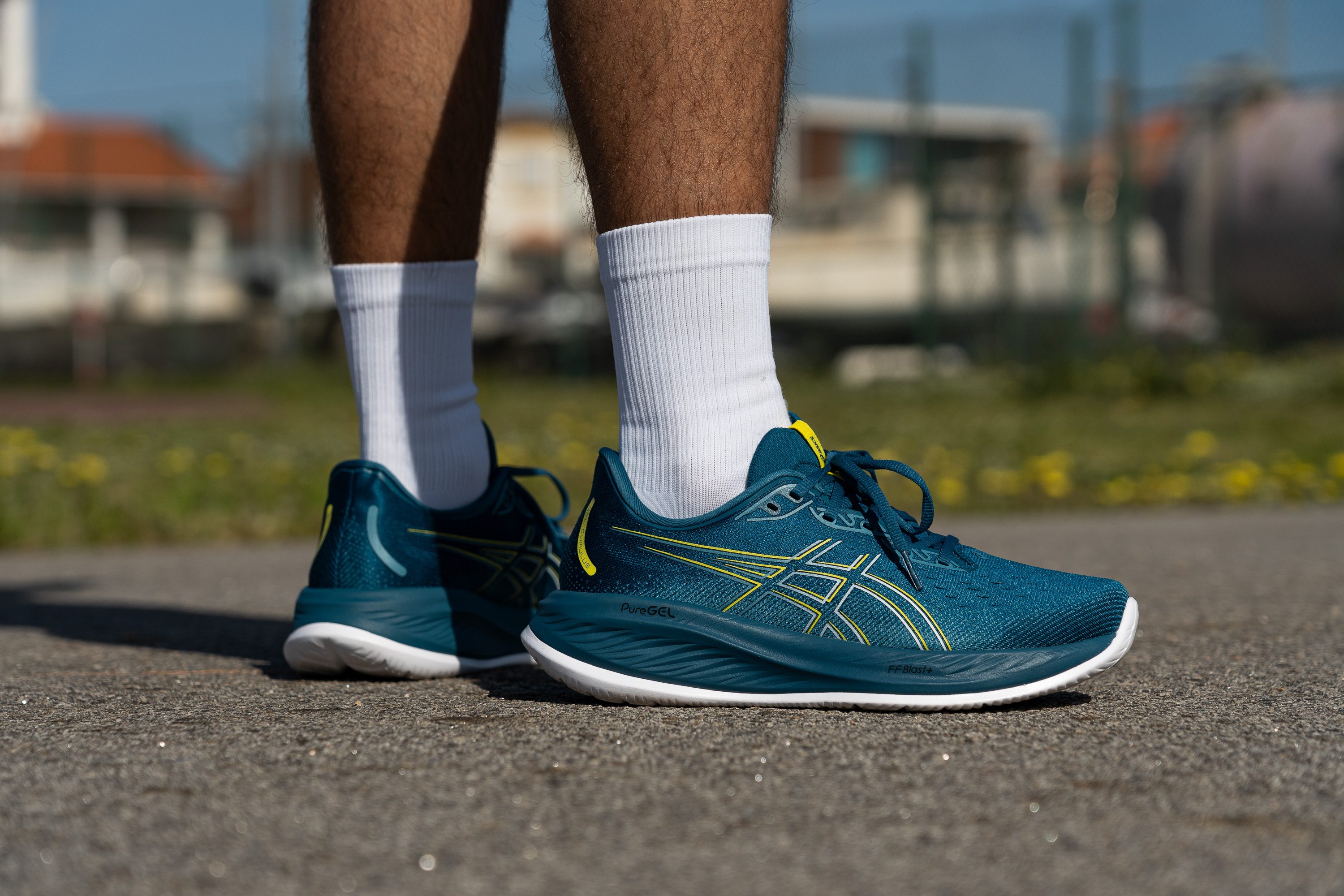
Who should NOT buy
We think the Cumulus 26 falls short of being the ultimate choice for those seeking a maximalist, ultra-cushioned running experience—especially for forefoot strikers. For a similar value, we recommend the best-seller ASICS Novablast 4, or the premium-priced ASICS Nimbus 26 if you're after the ultimate comfort.
We also believe the updates in terms of stability are not enough to make the Cumulus 26 a solid alternative for those in real need of support. For those runners, we suggest the Hoka Arahi 7 or sticking with the ASICS brand and opting for the GT 2000 12, both of which offer superior stability in a daily trainer package.
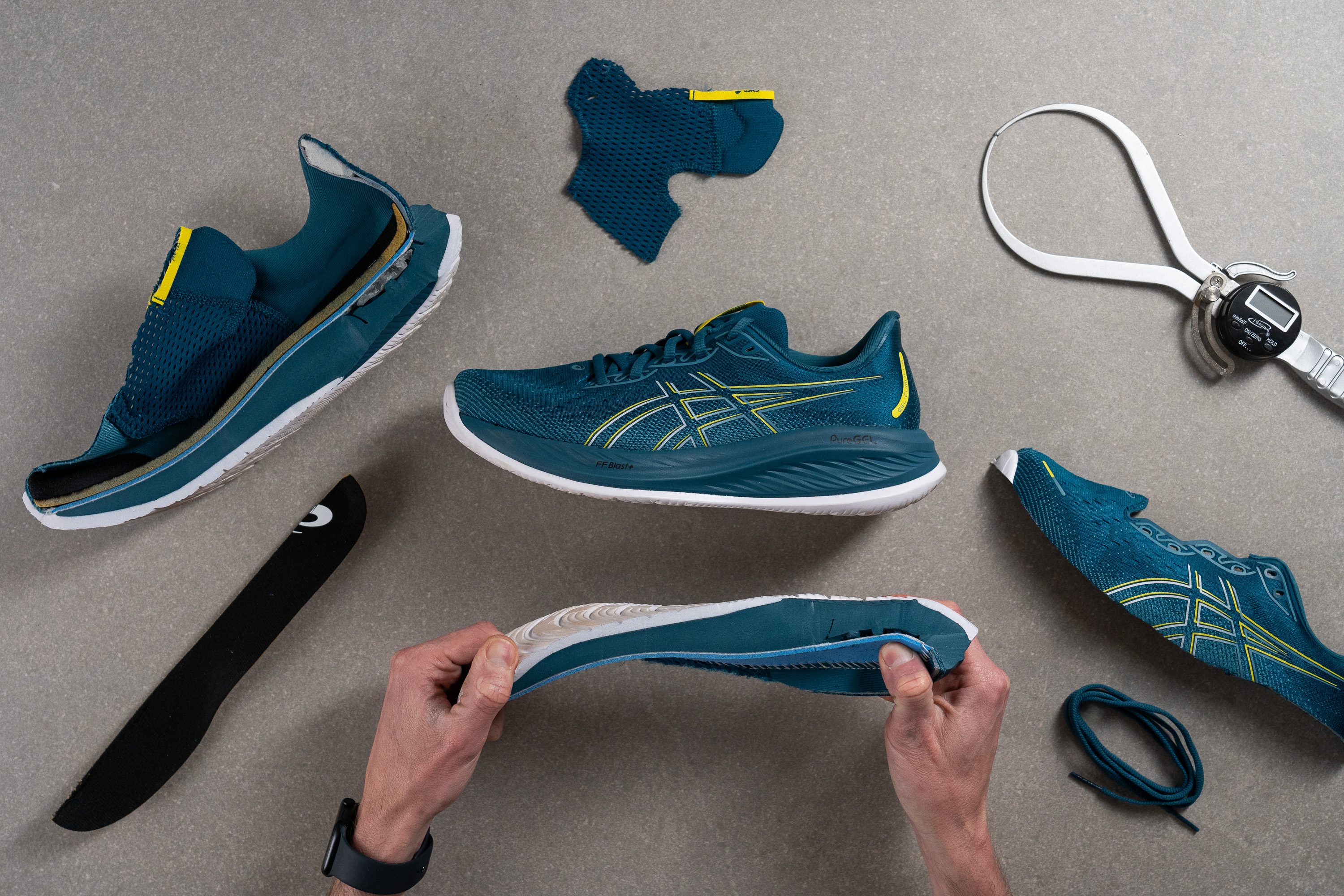
Cushioning
Shock absorption
We found that the Cumulus 26 took a step back in cushioning compared to its predecessor, landing at just 118 SA in the heel. While this still works for easy and mid-distance runs, heavier runners or long-distance fans might want to reconsider.
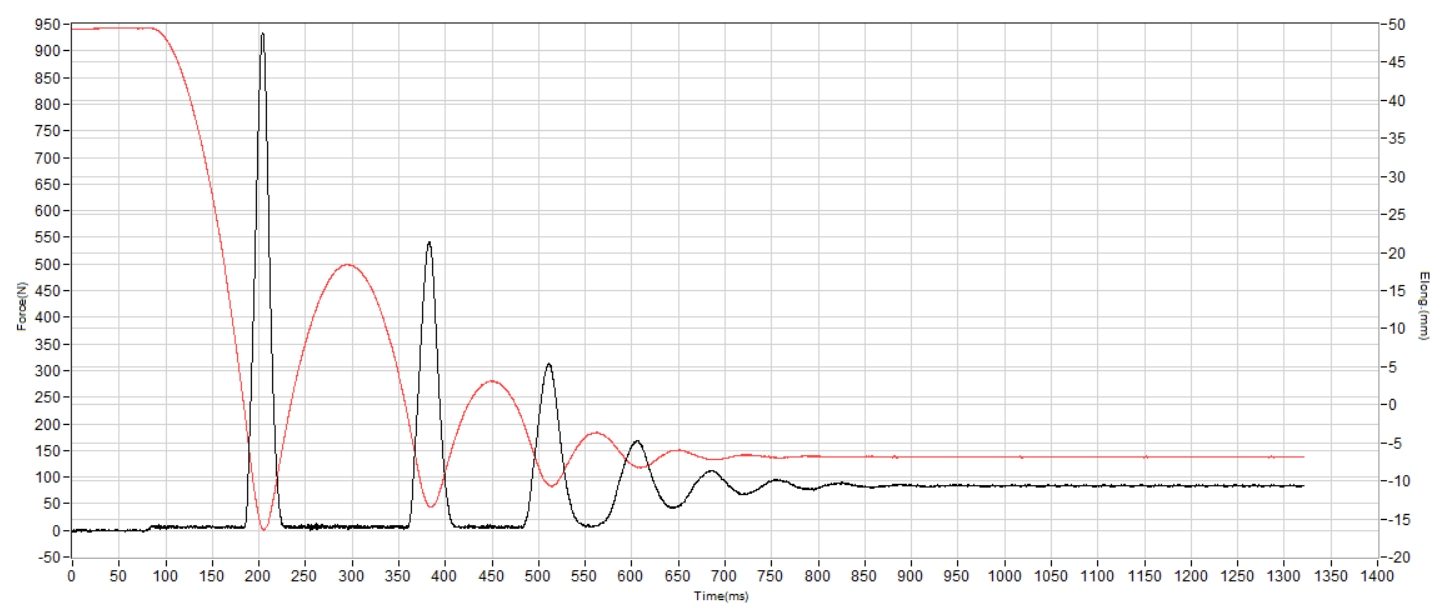
| Gel Cumulus 26 | 118 SA |
| Average | 130 SA |
Energy return
The biggest issue with the Cumulus 25 was its flat-feeling midsole with almost no bounce, and we were really hoping ASICS would fix that in version 26. Unfortunately, that didn’t happen.
We found a small improvement to 47.2%, but it’s still below 50% and trails behind the lab average. The FF Blast+ paired with the rubberized outsole clearly isn’t a fast-paced combo.
| Gel Cumulus 26 | 47.2% |
| Average | 58.6% |
Heel stack
In our view, the heel of the Cumulus 26 closely resembles those of maximalist shoes, with our digital callipers recording a stack height of 36.8mm in the rearfoot.
We hope ASICS doesn't increase the Cumulus beyond this point in the future, as it could compromise the agility and lightweight feel of this daily trainer. Right now, it's right on the edge of being too bulky!
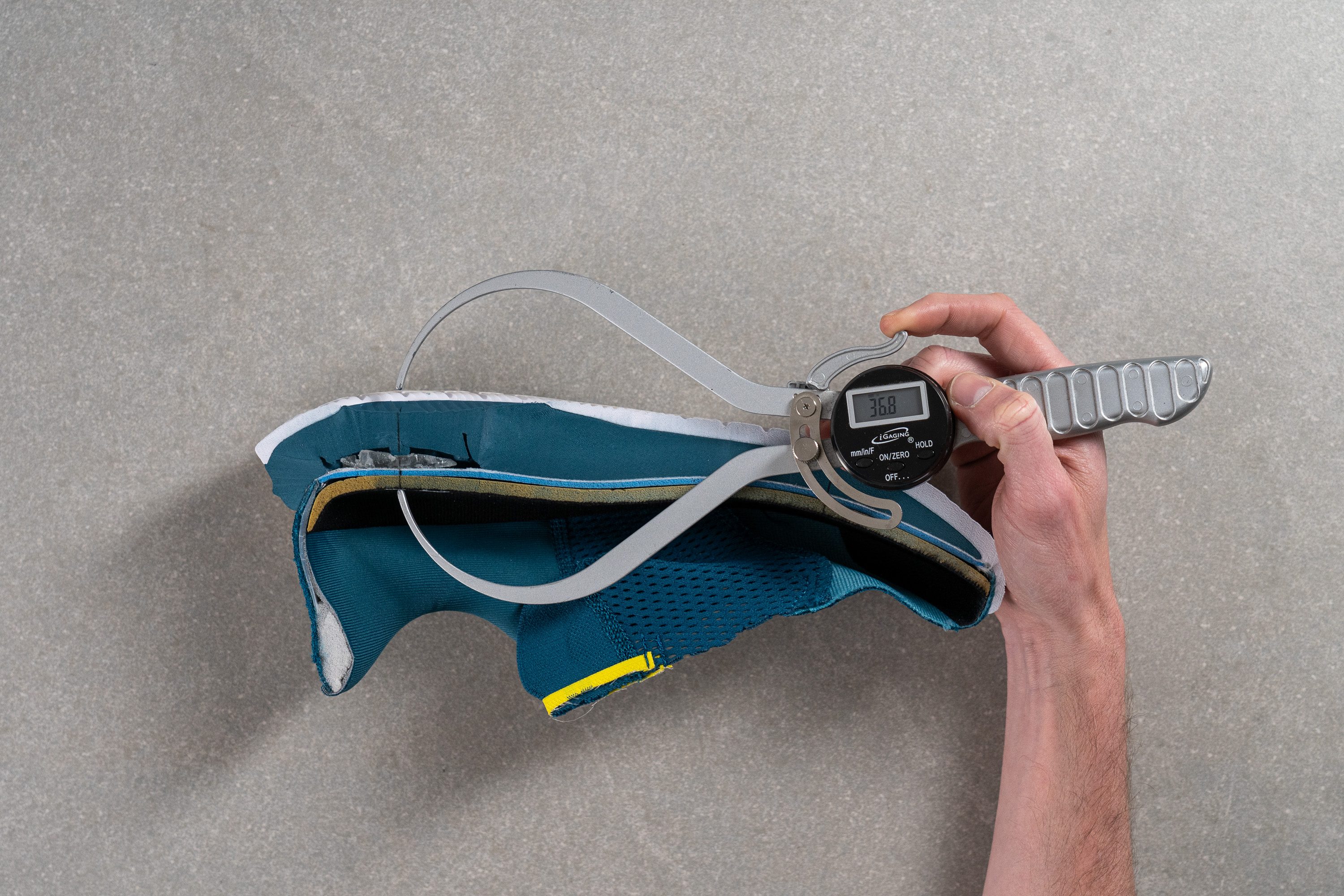
| Gel Cumulus 26 | 36.8 mm |
| Average | 34.8 mm |
Forefoot stack
The forefoot measured 28.6 mm in our lab tests, indicating that even runners who strike with their forefoot will find ample cushioning to support those weekend long runs.
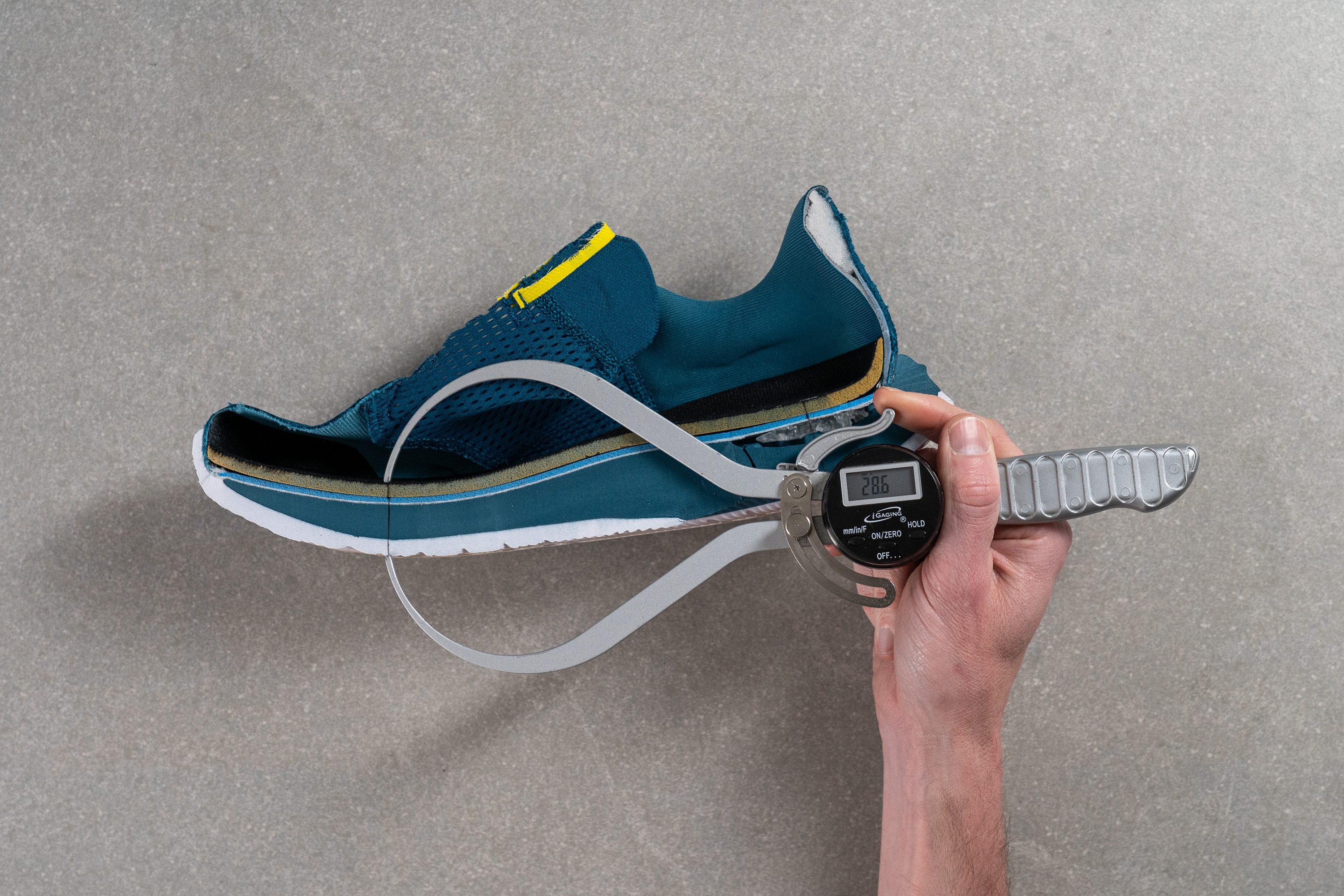
| Gel Cumulus 26 | 28.6 mm |
| Average | 26.2 mm |
Drop
In terms of drop, ASICS has consistently designed the Cumulus series with a universal 8-mm drop, and our precise measurements confirmed an 8.2 mm drop, effectively validating the shoe's design.
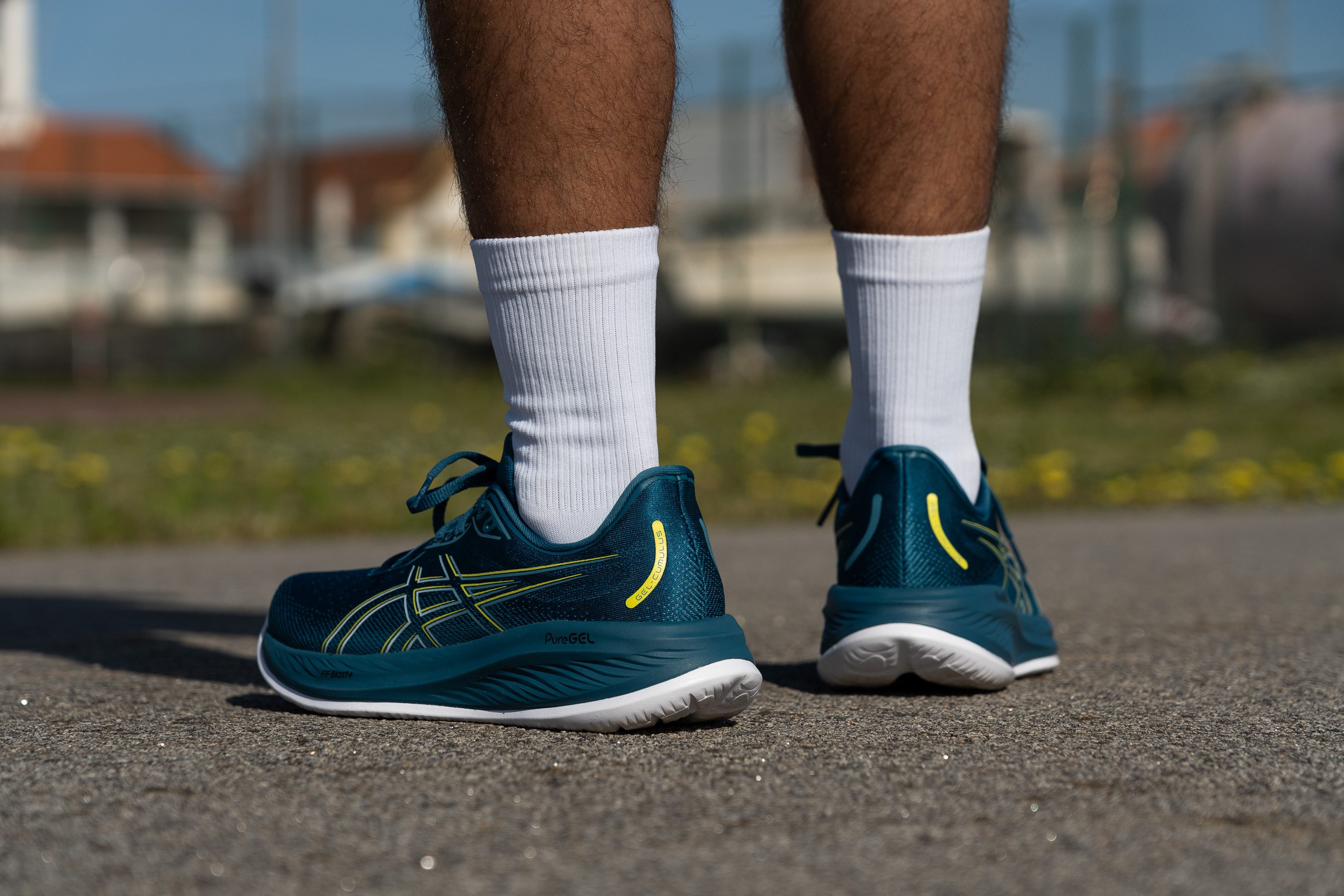
In fact, we're accustomed to finding much larger discrepancies in other models, so a mere 0.2-mm difference is definitely praiseworthy and speaks highly of their manufacturing processes.
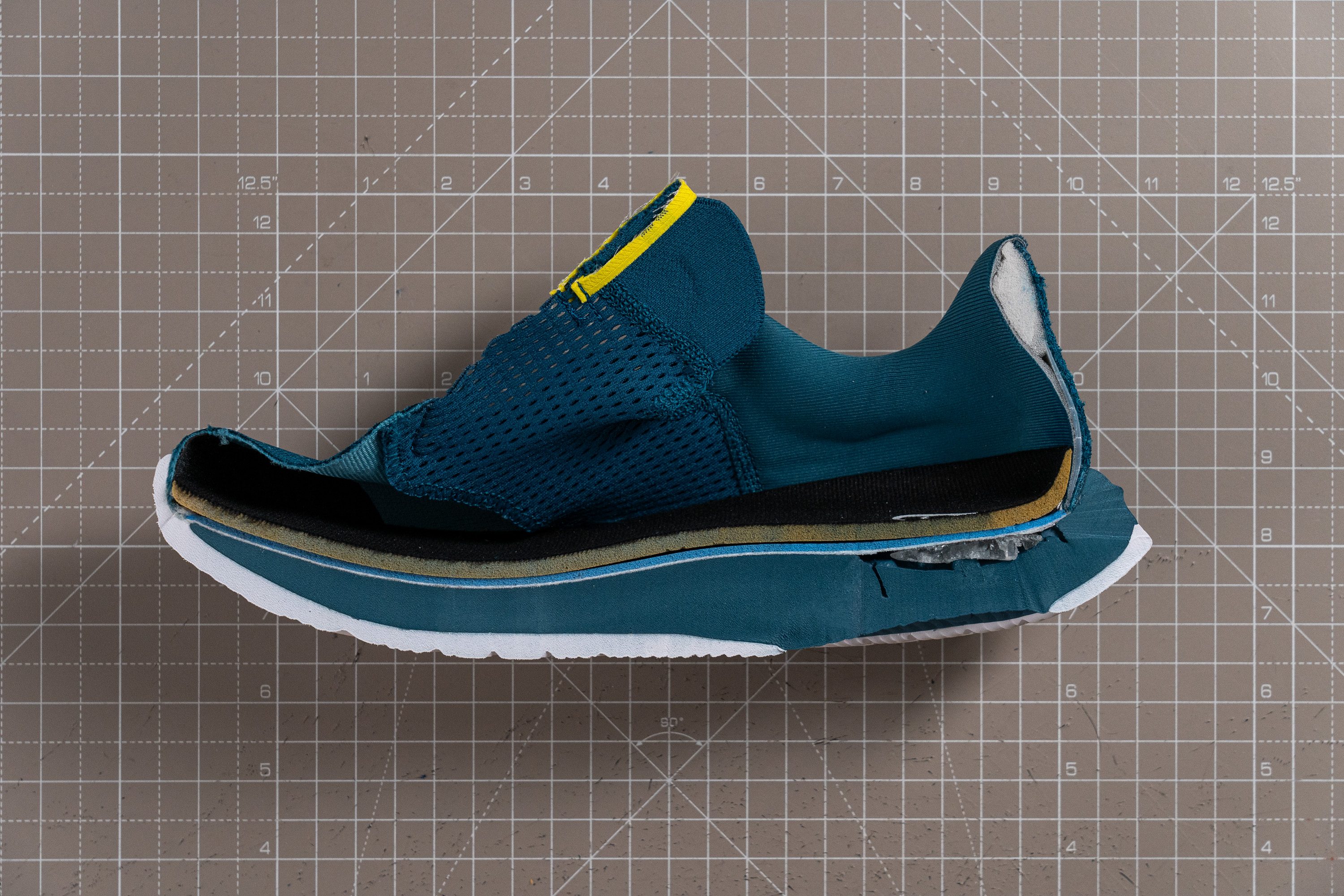
| Gel Cumulus 26 | 8.2 mm |
| Average | 8.6 mm |
Midsole softness
UpdatedBeneath the insole, the FF Blast+ (EVA+OBC) midsole is paired with a piece of PureGEL. This evolved form of the traditional GEL technology that ASICS has long employed features a compact piece strategically placed above the foam in the rearfoot area.
This design is particularly beneficial for ensuring softer landings, making it an excellent choice for heel strikers who prioritise comfort above all else.
Furthermore, the midsole strikes a balance with a softness rating of 34.6 AC, though it stops short of being overly plush. The most accurate description from us would be... moderately plush!
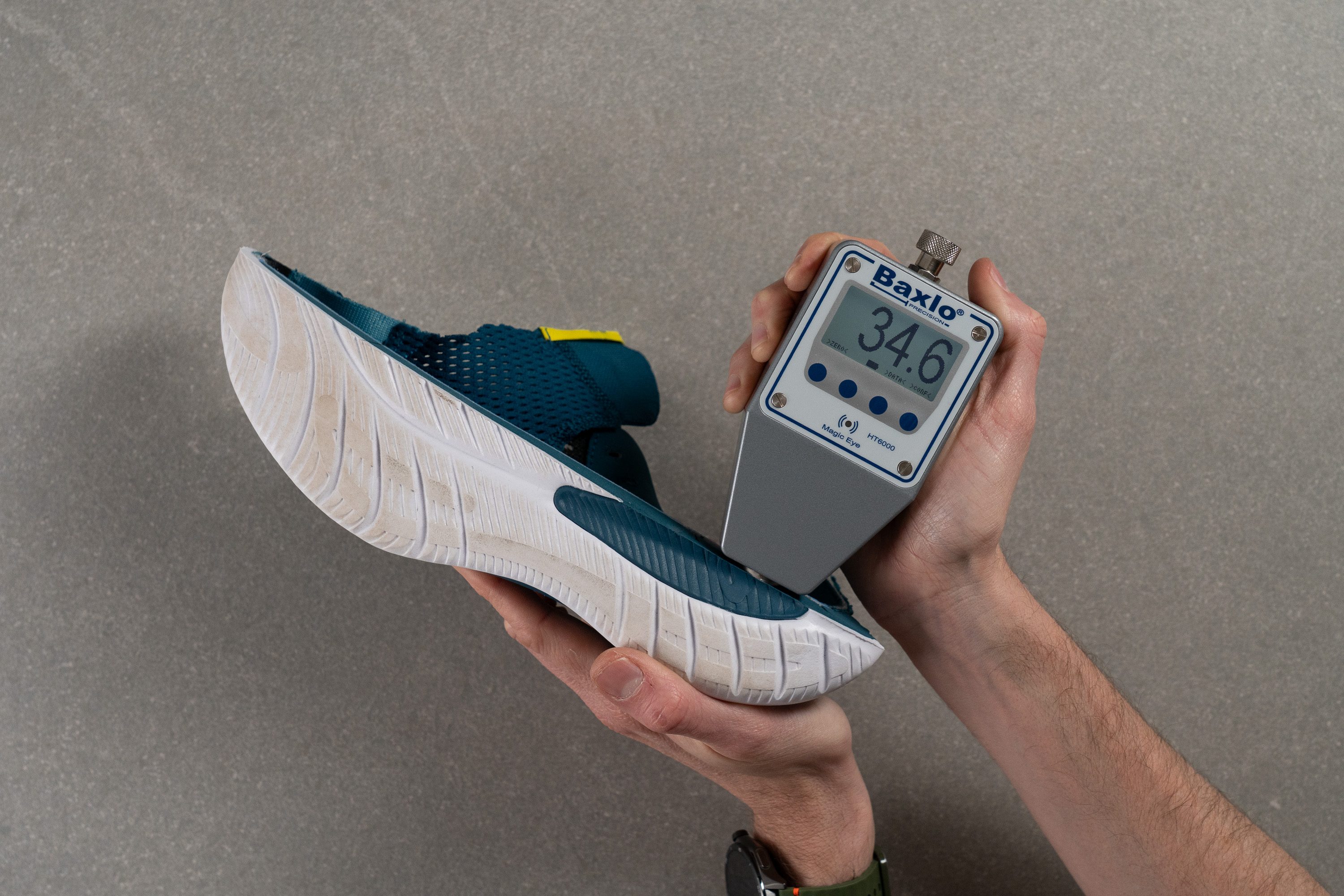
| Gel Cumulus 26 | 34.6 AC |
| Average | 36.4 AC |
Secondary foam
UpdatedWe also measured the firmer EVA layer that makes direct contact with the ground, and unsurprisingly, it returned a super-high 51.0 AC, confirming its distinctly firm, impact-resistant nature.
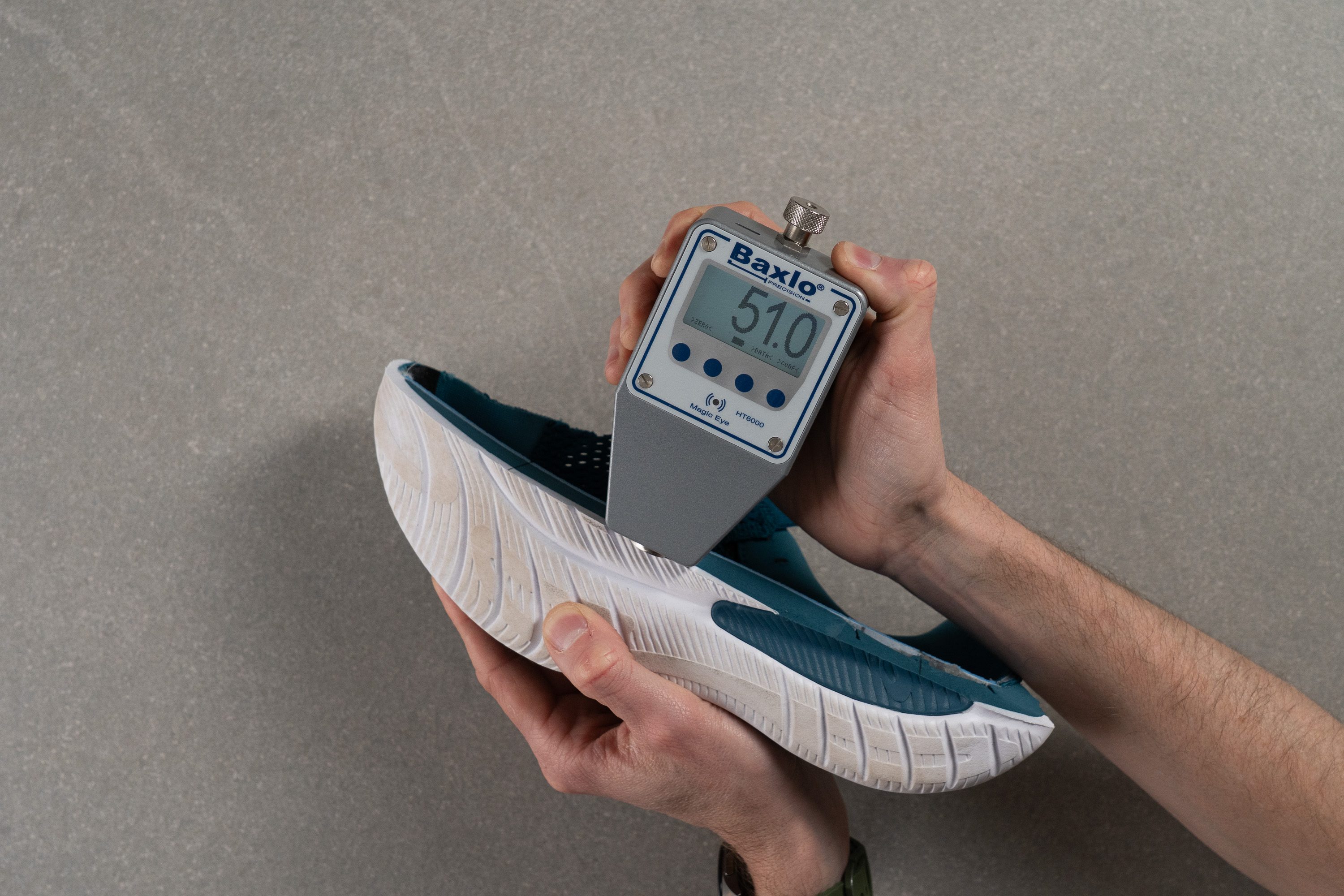
| Gel Cumulus 26 | 51.0 AC |
| Average | 39.1 AC |
Size and fit
Size
ASICS Gel Cumulus 26 fits true to size (118 votes).
Internal length
| Gel Cumulus 26 | 272.1 mm |
| Average | 269.4 mm |
Width / Fit
Now it's time to examine the fit, a critical aspect of every running shoe. Our initial measurement focused on the widest part of the shoe, which came in at 94.6 mm. This is slightly narrower than some daily trainers, though the difference is minimal.
We can confidently state that the Cumulus 26 fits most runners well. However, those with broader feet might consider the Wide size (if available in your region) or explore roomier models like the New Balance FuelCell Rebel v4.
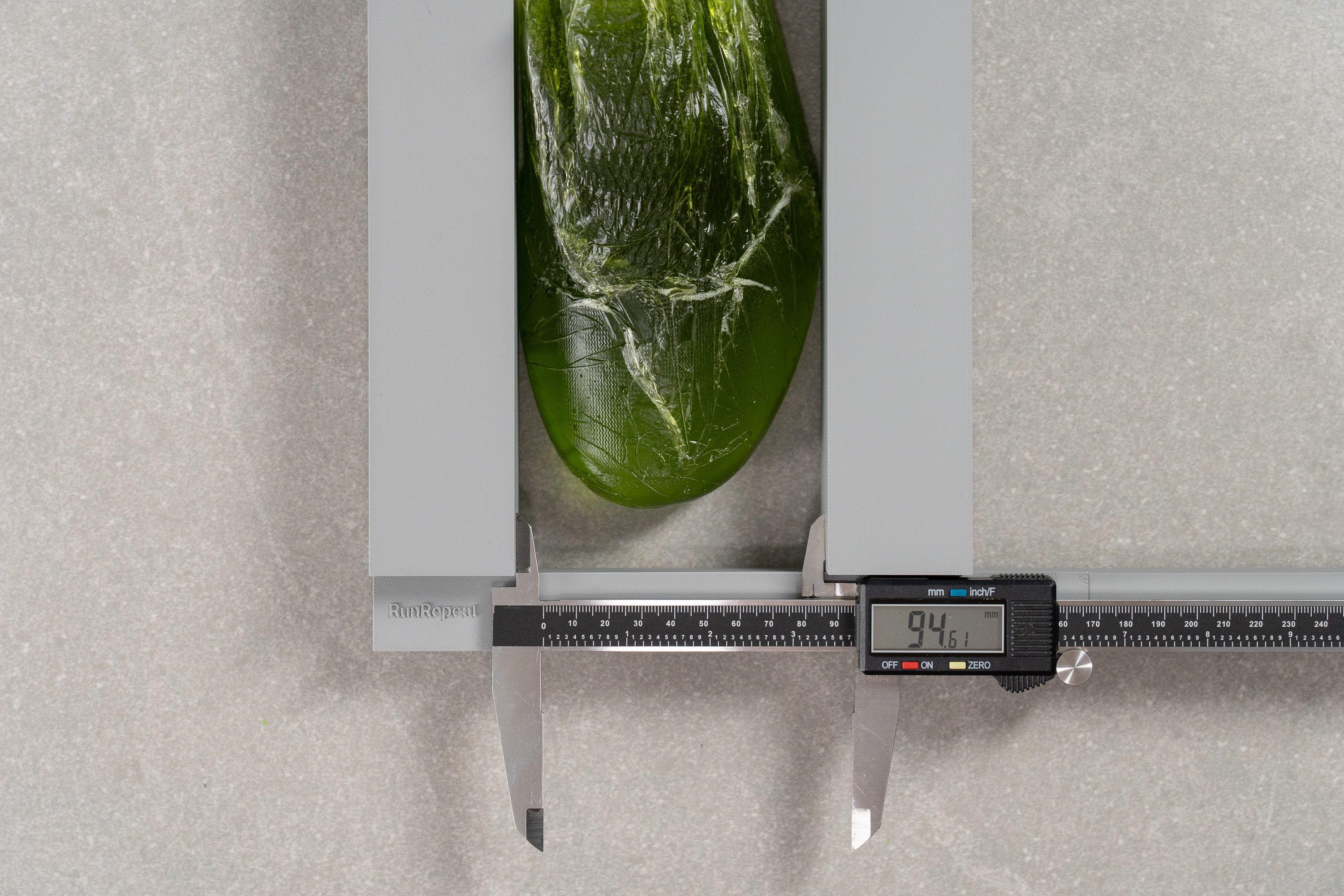
| Gel Cumulus 26 | 94.6 mm |
| Average | 95.1 mm |
Toebox width
We also measure the width of the toebox to provide a clearer view of the fit. The second measurement, at 73.2 mm, shows an average design that will work for most runners.
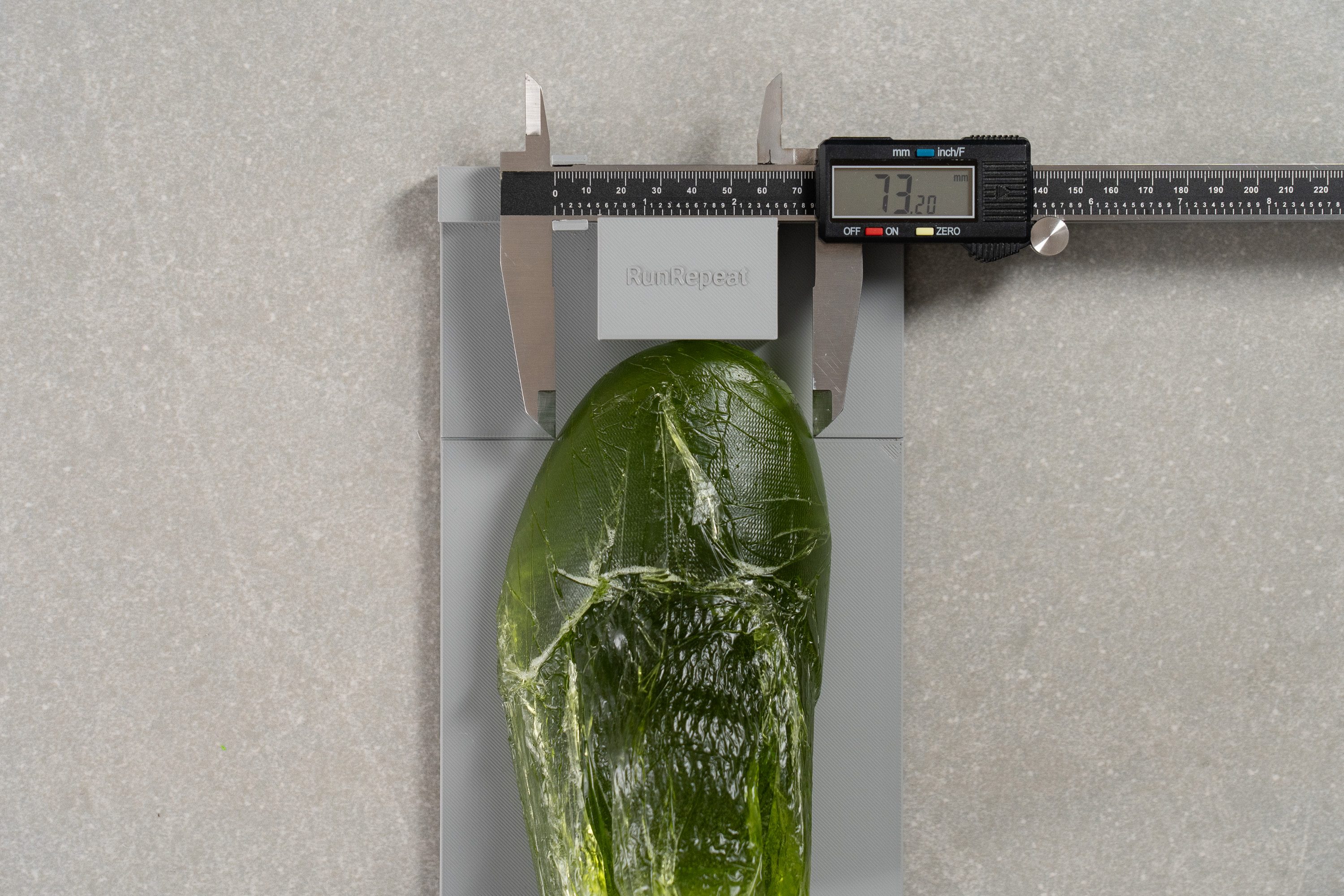
| Gel Cumulus 26 | 73.2 mm |
| Average | 73.3 mm |
Toebox height
The toebox height (29.2 mm) provides generous vertical space for toe movement, making it ideal for runners who value upward freedom.
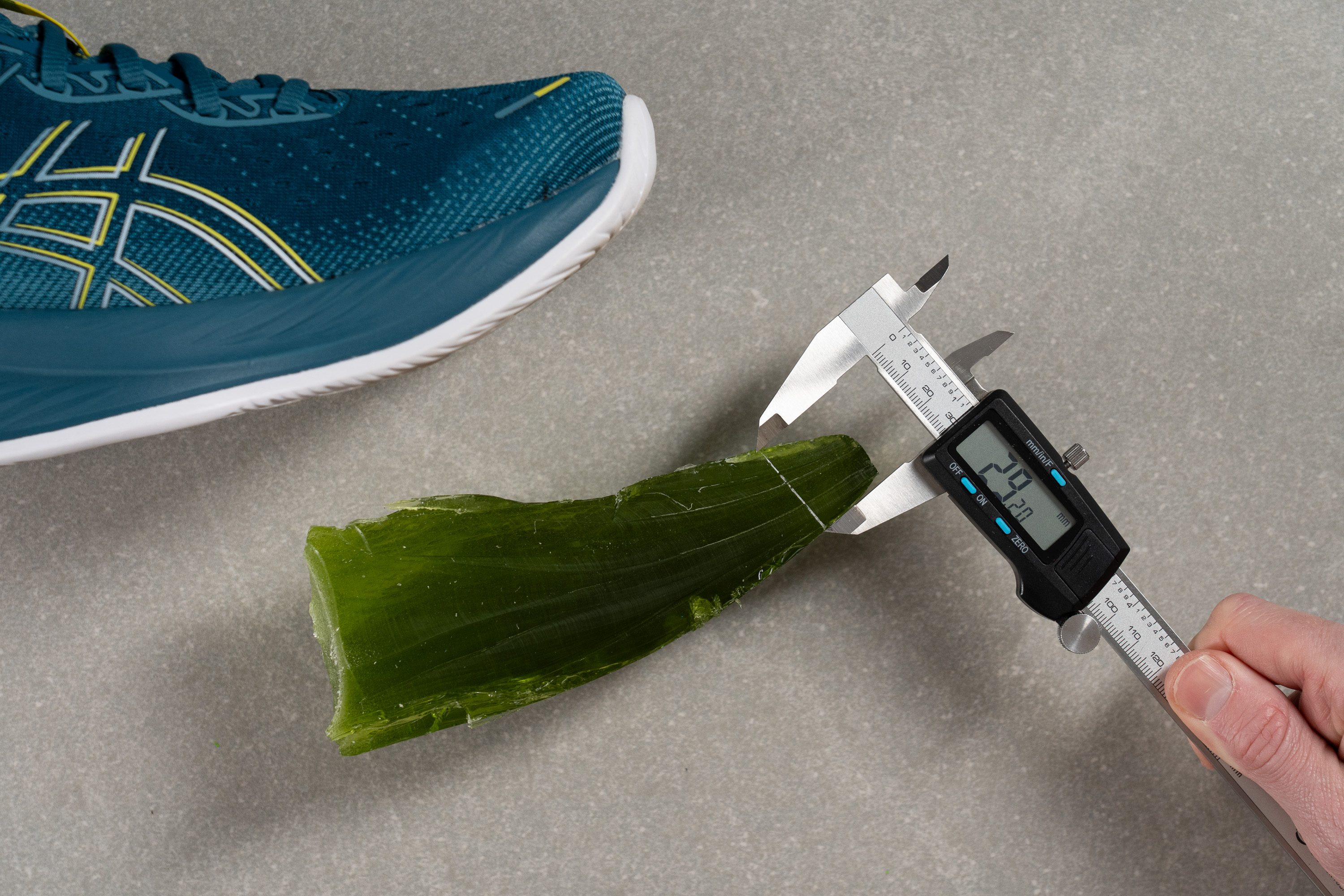
| Gel Cumulus 26 | 29.2 mm |
| Average | 27.0 mm |
Traction / Grip
Traction test
In our rainy-like grip test, the Cumulus 26 delivered a decent performance, scoring 0.48. That puts it right around the average, but we were surprised.
This kind of rubberized foam outsole often struggles in the rain compared against a traditional outsole design, yet here it held up better than expected. So, all things considered, it's not that bad!
| Gel Cumulus 26 | 0.48 |
| Average | 0.49 |
Outsole design
Instead of using standard rubber, ASICS went with a rubberized EVA compound called FluidRide. It’s meant to strike a balance between cushioning and durability, and the outsole features multiple grooves to improve flexibility.
This approach isn’t new—brands like Hoka have pulled it off before—but we think it has its limits. For instance, this outsole isn’t ideal for easy trails or gravel roads when it comes to long-term durability and traction.
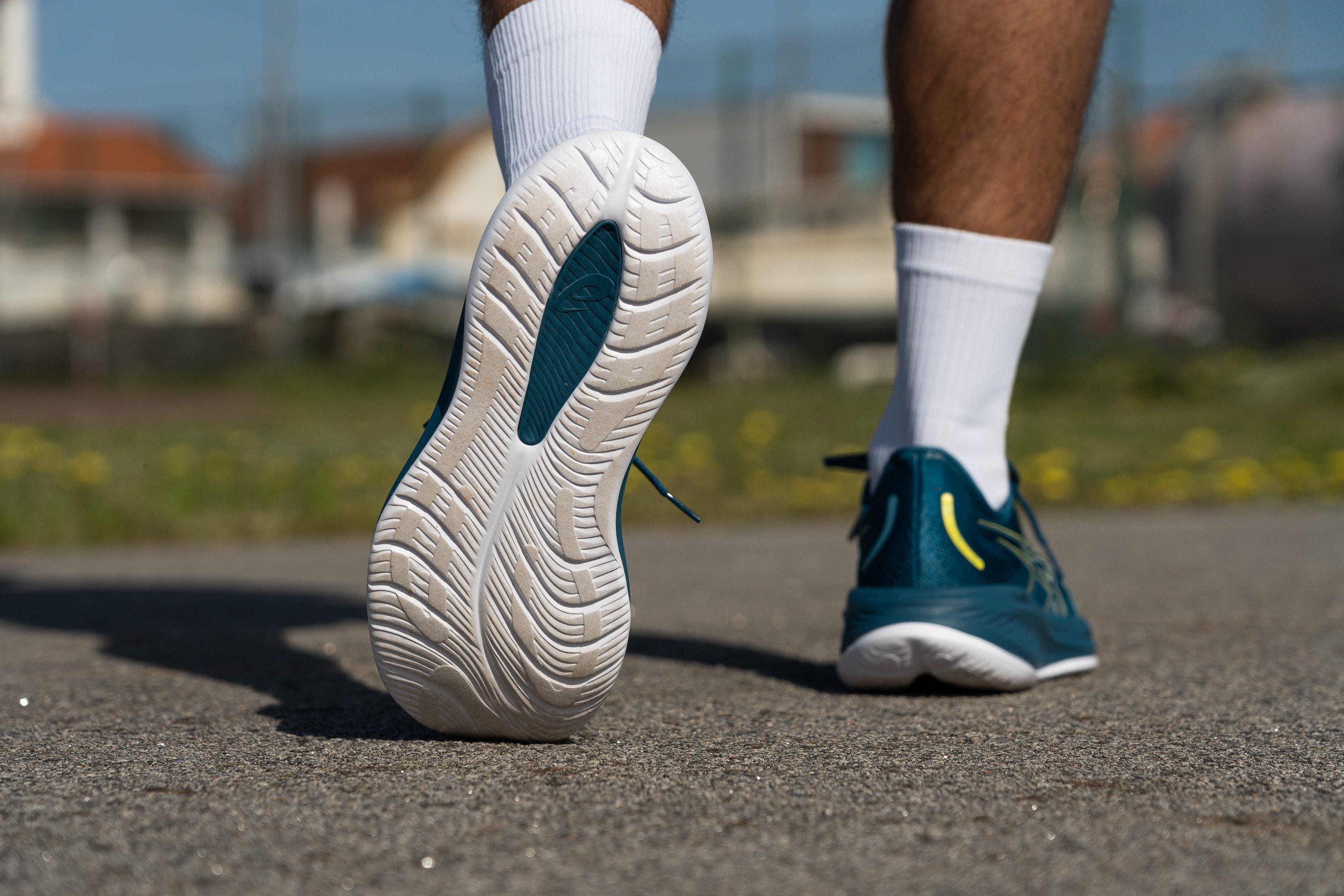
Flexibility / Stiffness
In our 30-degree bend test, the stiffness of the Cumulus 26 registered at 16.5N, which is typical for a daily trainer. This level of stiffness ensures decent flexibility, making the shoe comfortable and not too stiff during slower runs.
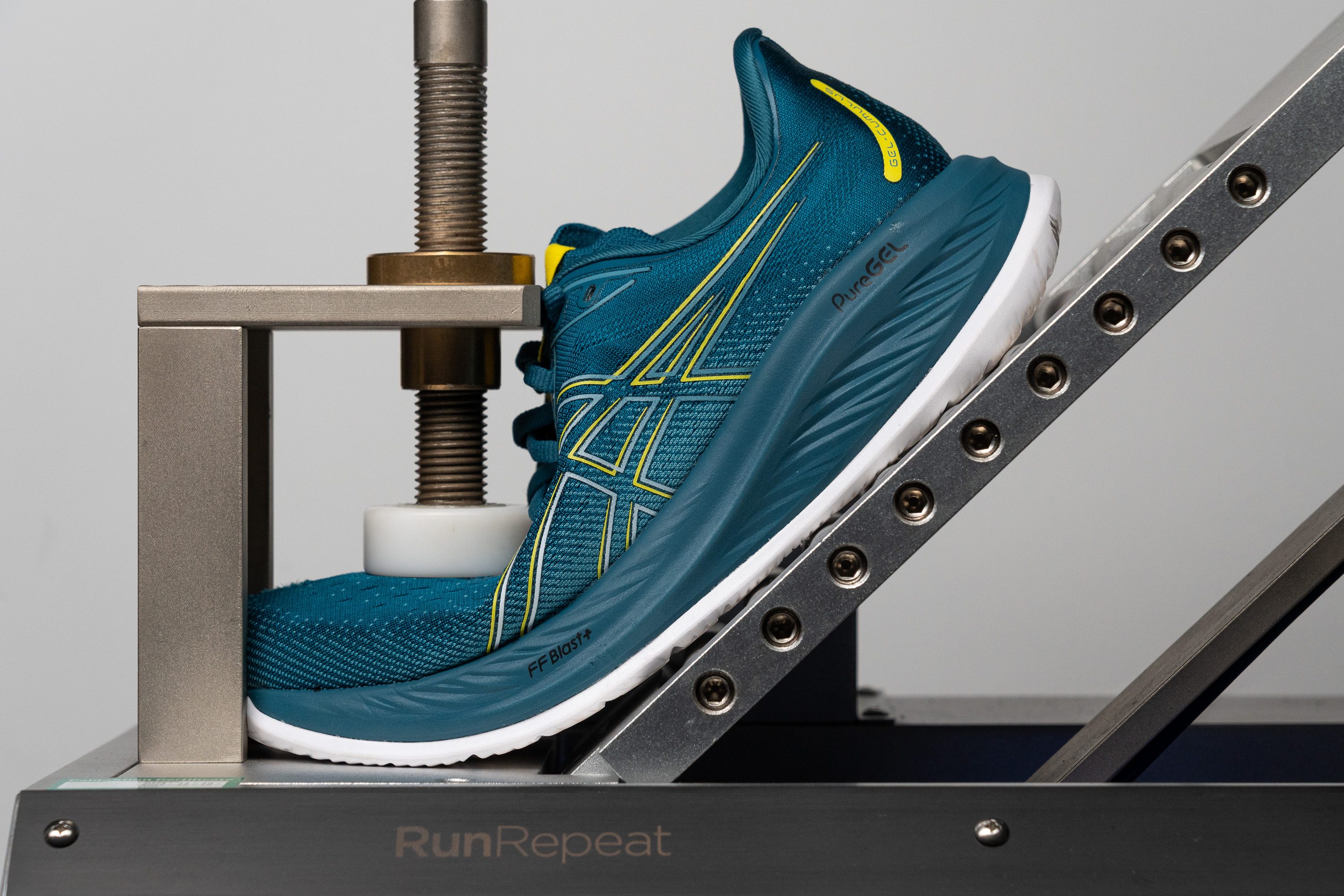
| Gel Cumulus 26 | 16.5N |
| Average | 15.3N |
Stiffness in cold (%)
To assess performance in cold temperatures, we placed the shoe back in the freezer for another 20 minutes and then retested its stiffness with our force gauge.
We discovered that it became 38.1% stiffer, an average result that aligns with our expectations for FF Blast+ foam.
| Gel Cumulus 26 | 38% |
| Average | 33% |
Weight
We always found the Cumulus as a lightweight and more affordable alternative to the Nimbus series, and this model takes that a step further. At just 9.1 oz or 259g, it's 4% lighter than its predecessor.
Although the weight reduction is subtle, we consider any improvement in lightness a bonus, especially when it enhances the running experience.
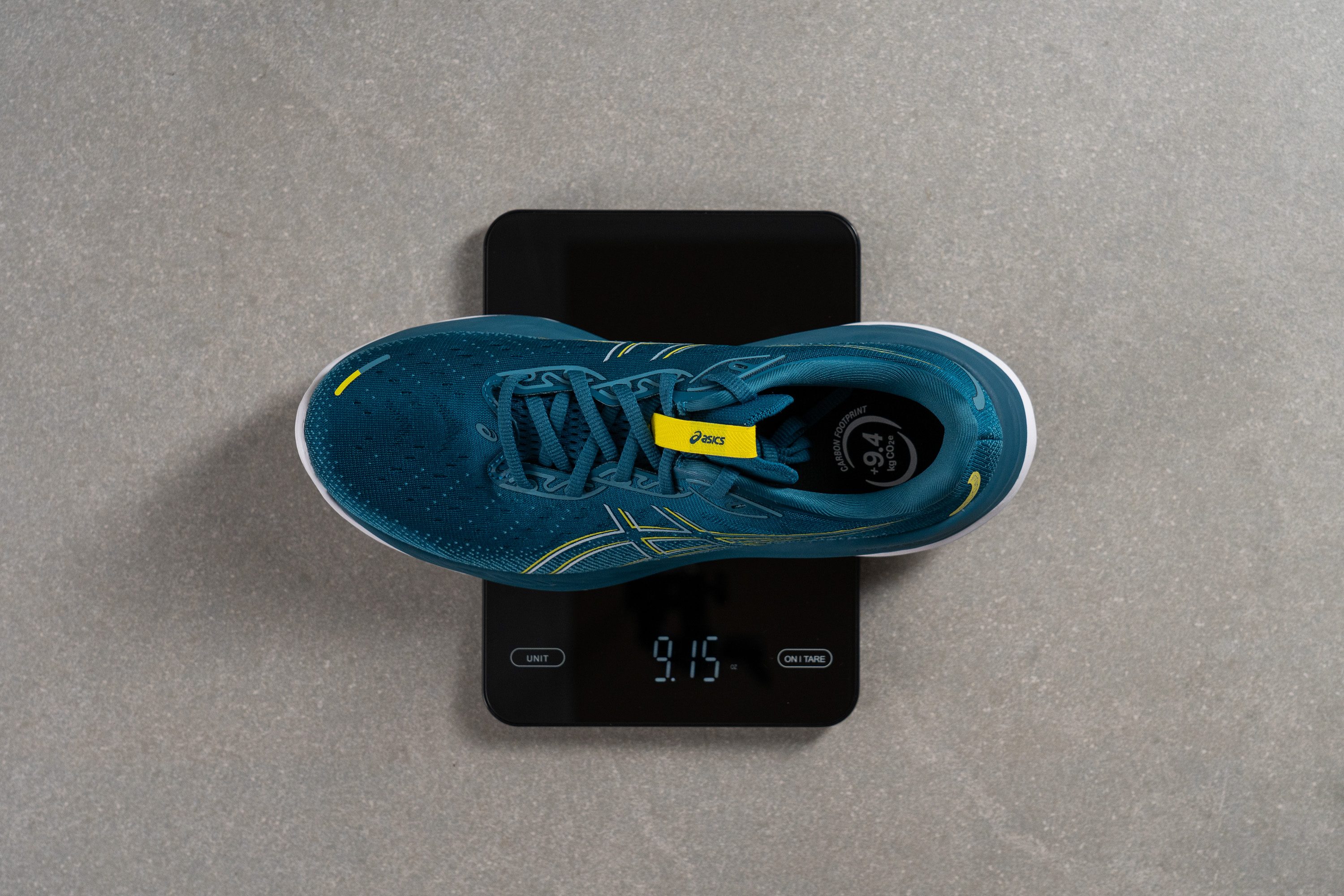
| Gel Cumulus 26 | 9.1 oz (259g) |
| Average | 9.3 oz (264g) |
Breathability
ASICS has revamped the upper from the Cumulus 25 to the 26 edition, and it has had noticeable effects. While the previous model had great breathability, our testing rated the latest version a modest 3/5, which we found slightly disappointing during our smoke test.
We were curious about the cause of this change. Initially, we inspected the upper under a light to identify the thinnest areas and any ventilation openings. There was minimal light penetration through the dense upper, confirming that ASICS likely did not prioritise maximum ventilation in this design at all.
Intrigued, we used a microscope to closely examine the engineered mesh.
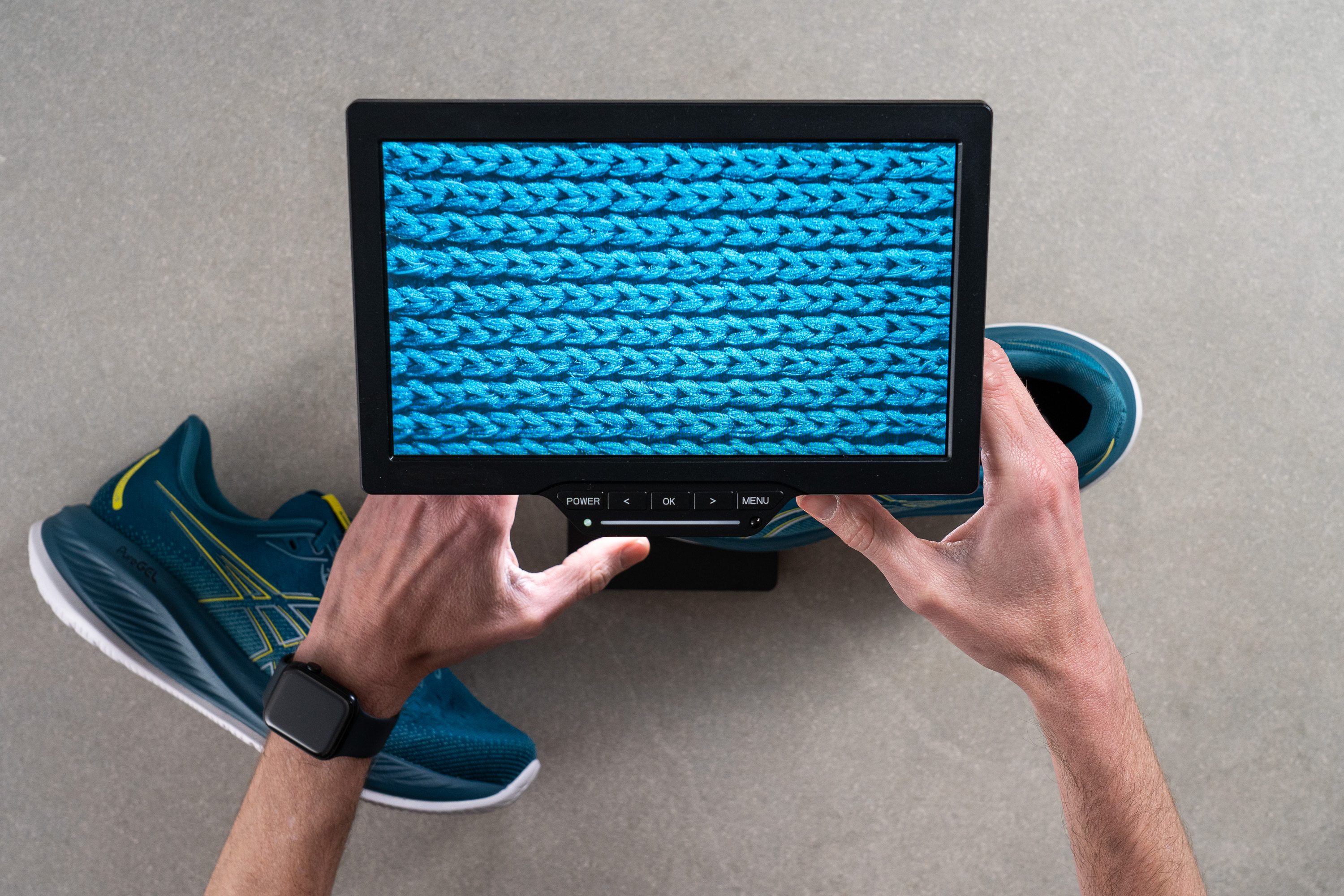
It's clear that this shoe is not ideal for hot summer runs.
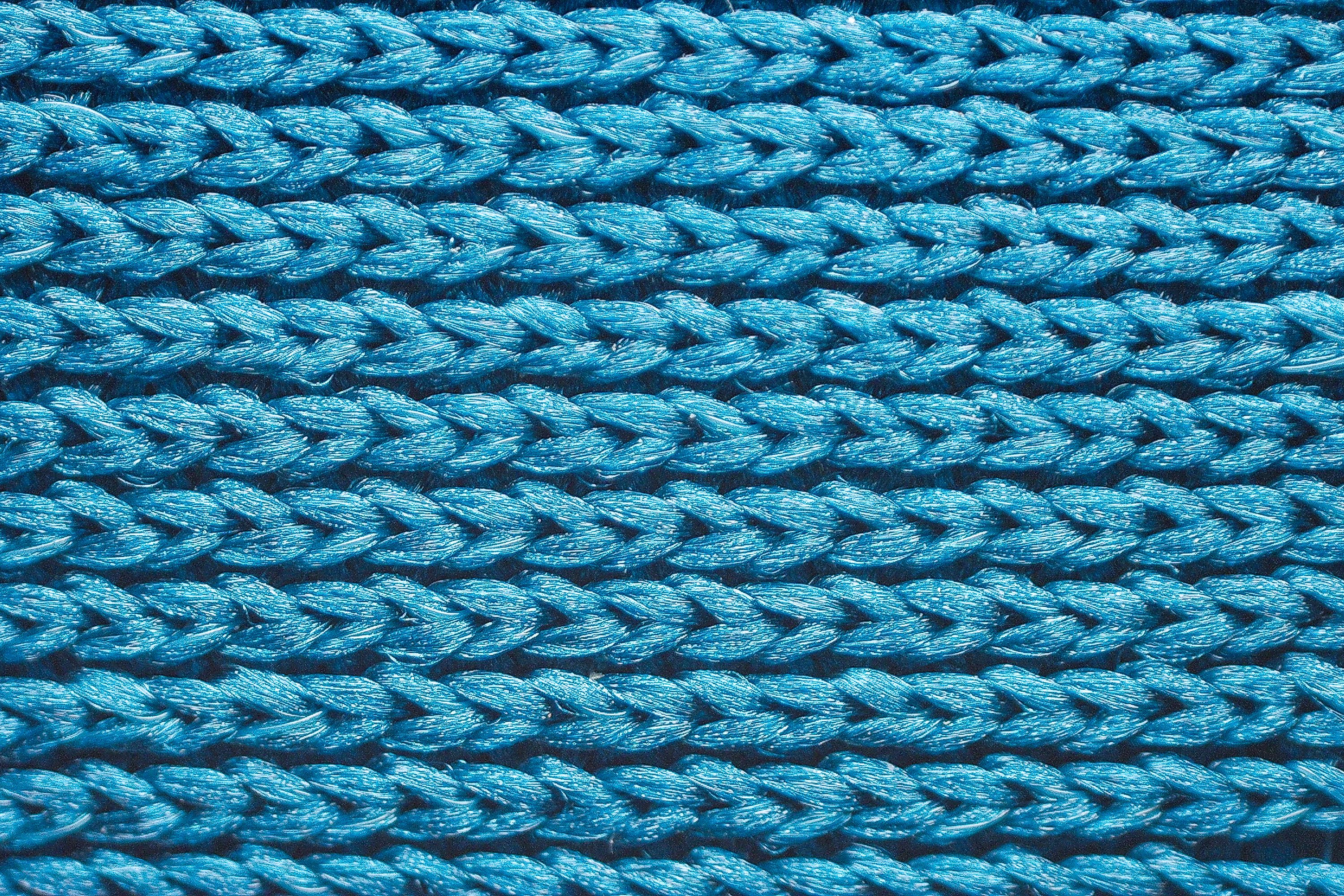
Lastly, we conducted a manual examination of the upper.
We discovered that airflow is mostly blocked by a layer of fabric beneath the mesh, with the tongue serving as the primary air entry point. We also noted that the shoe has sufficient padding in the heel and midfoot, though nothing spectacular.
| Gel Cumulus 26 | 3 |
| Average | 3.7 |
Stability
Lateral stability test
The Cumulus remains a neutral daily trainer similar to previous versions. However, we found in our runs that it does include some minor improvements in stability. Let's take a look!
Torsional rigidity
In terms of support, a notable update from the previous Cumulus is the torsional rigidity of the shoe. It definitely feels more rigid underfoot, and our manual assessment confirms this improvement, upgrading its rating from 3/5 to 4/5 in this version.
| Gel Cumulus 26 | 4 |
| Average | 3.5 |
Heel counter stiffness
The change that truly impressed us is the increased stiffness of the heel counter. Previously rated at 3/5, similar to most daily trainers, ASICS has enhanced the stability significantly, prompting us to award it a 5/5.
This adjustment is beneficial for those requiring mild stability, though we believe it also may be excessive and reduce heel comfort. This could be a deal-breaker for those who do not need that extra support.
| Gel Cumulus 26 | 5 |
| Average | 2.9 |
Midsole width - forefoot
Shifting our focus to the midsole, we again noted a very wide platform in the forefoot, measuring exactly 120.0 mm. This provides a broad landing area for enhanced stability.
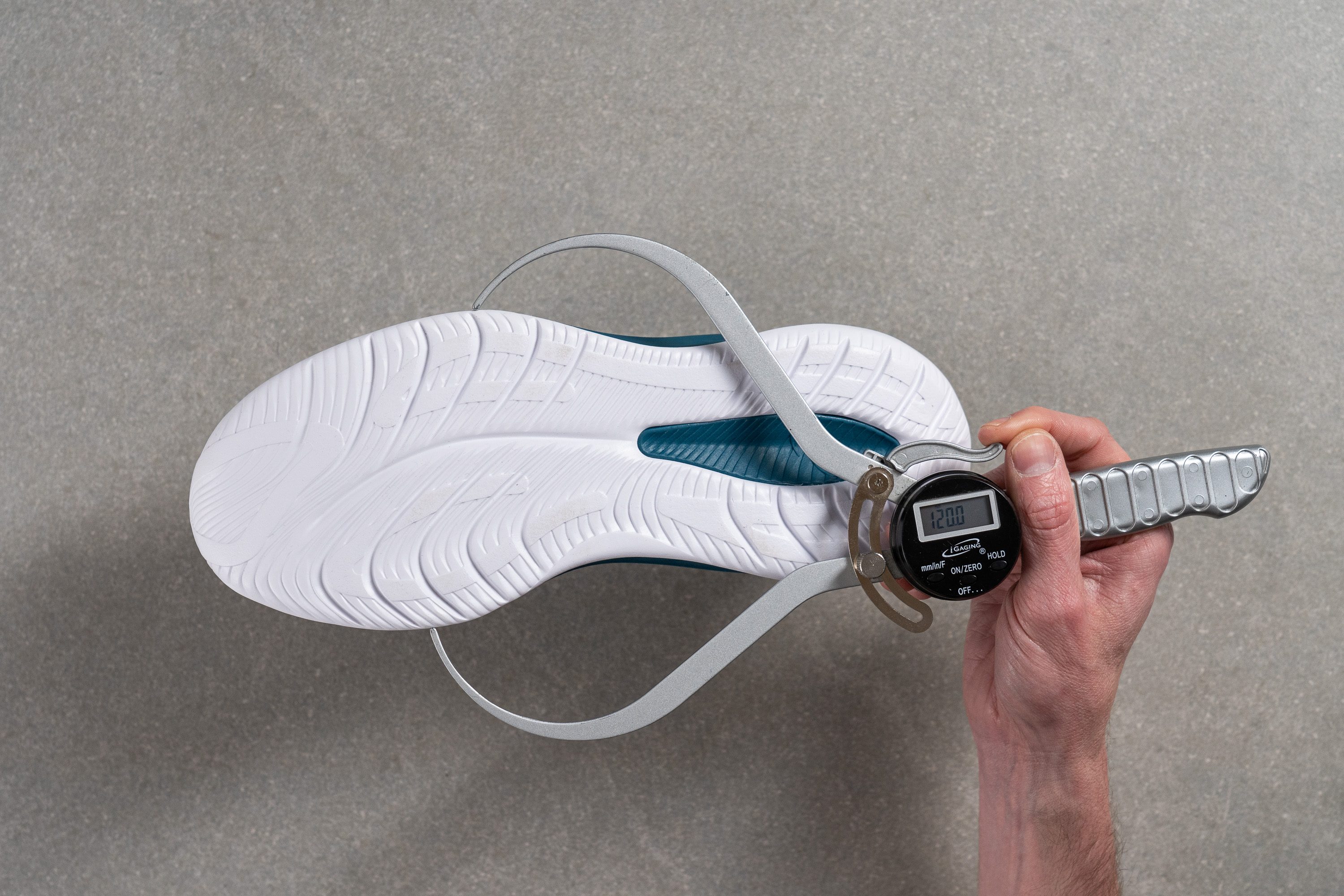
| Gel Cumulus 26 | 120.0 mm |
| Average | 114.4 mm |
Midsole width - heel
The heel design also follows the same spacious concept, and we measured it precisely at 100.0 mm.
This is significant because ASICS is targeting heel strikers with this shoe, incorporating technologies like PureGEL in this area alongside increased stiffness.
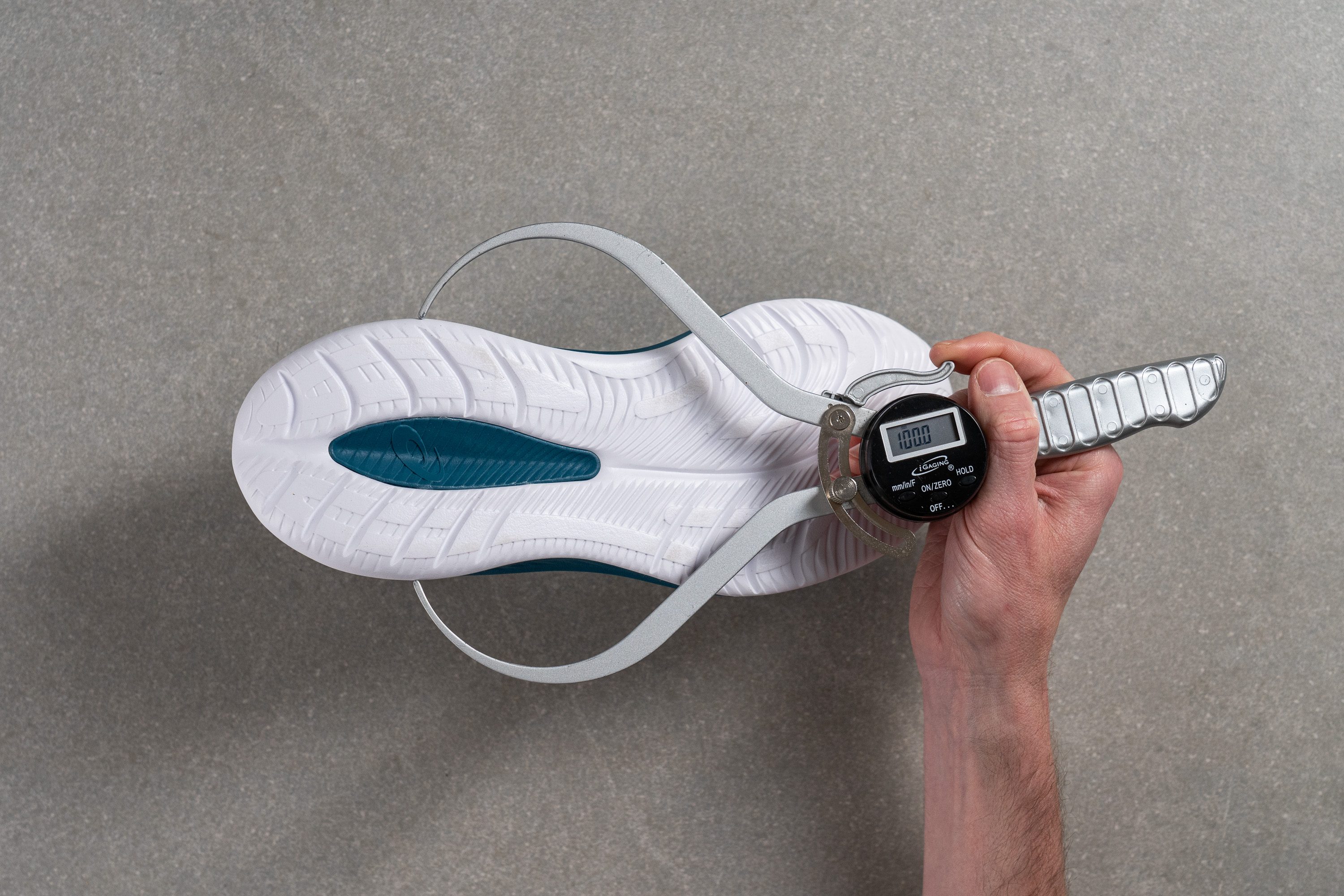
| Gel Cumulus 26 | 100.0 mm |
| Average | 90.6 mm |
Durability
Toebox durability
Just like in life, every downside has an upside. The Cumulus 26 might not offer ideal ventilation, but this feature makes it excellent for winter runs and suggests it might have better durability than most running shoes.
We were thrilled with the performance in this tests, as the thick engineered mesh proved exceptionally resistant during our Dremel challenge—earning a stellar 4 out of 5. This durability maybe compensates the lack of ventilation for some.
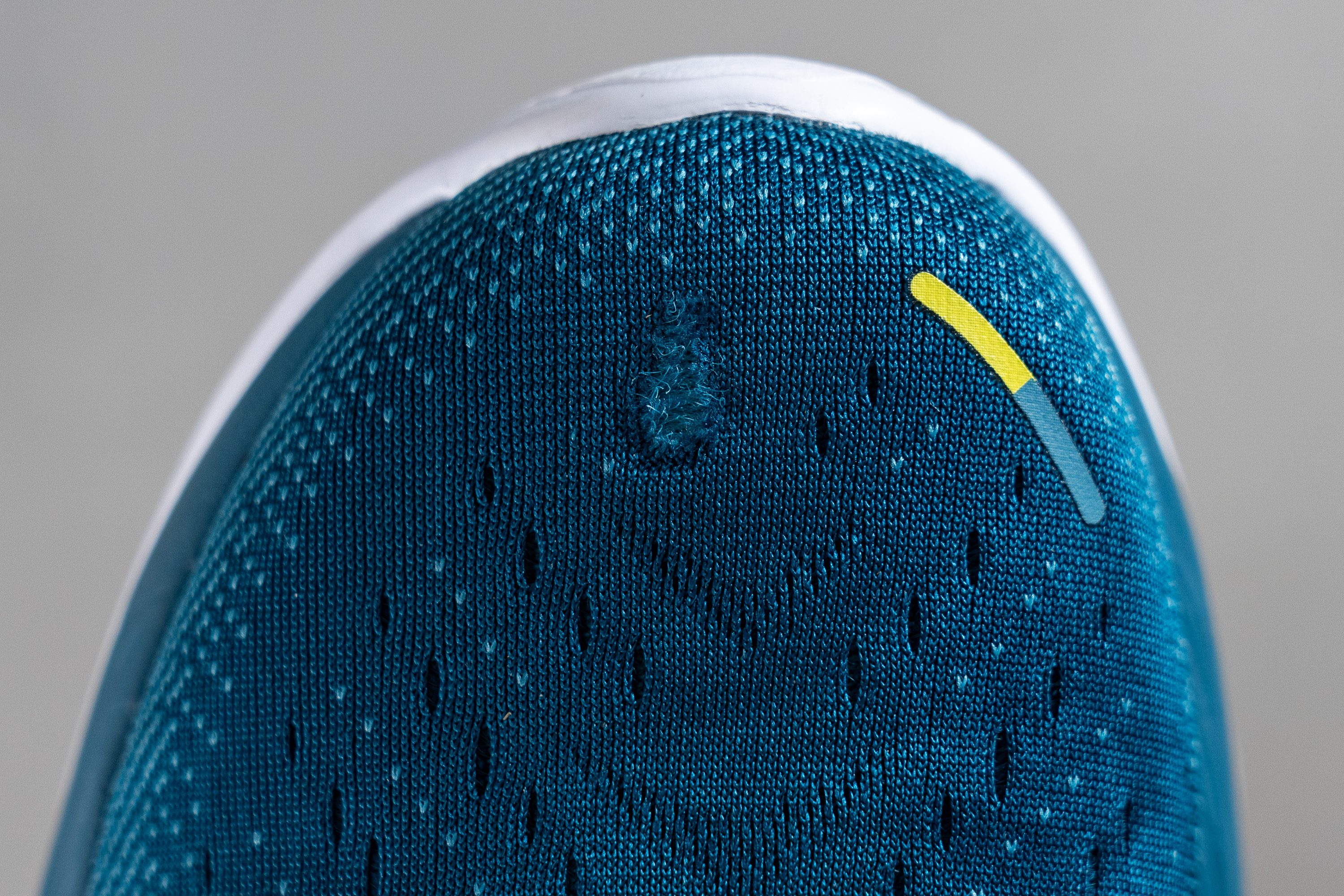
| Gel Cumulus 26 | 4 |
| Average | 2.6 |
Heel padding durability
But hold on, it only gets better for the Cumulus 26 in our Dremel battle.
In our second evaluation, we discovered that the heel padding performed exceptionally well against the sandpaper, achieving an impressive 5/5. This result ensures long-lasting durability in an area typically susceptible to wear and tear. Fantastic!
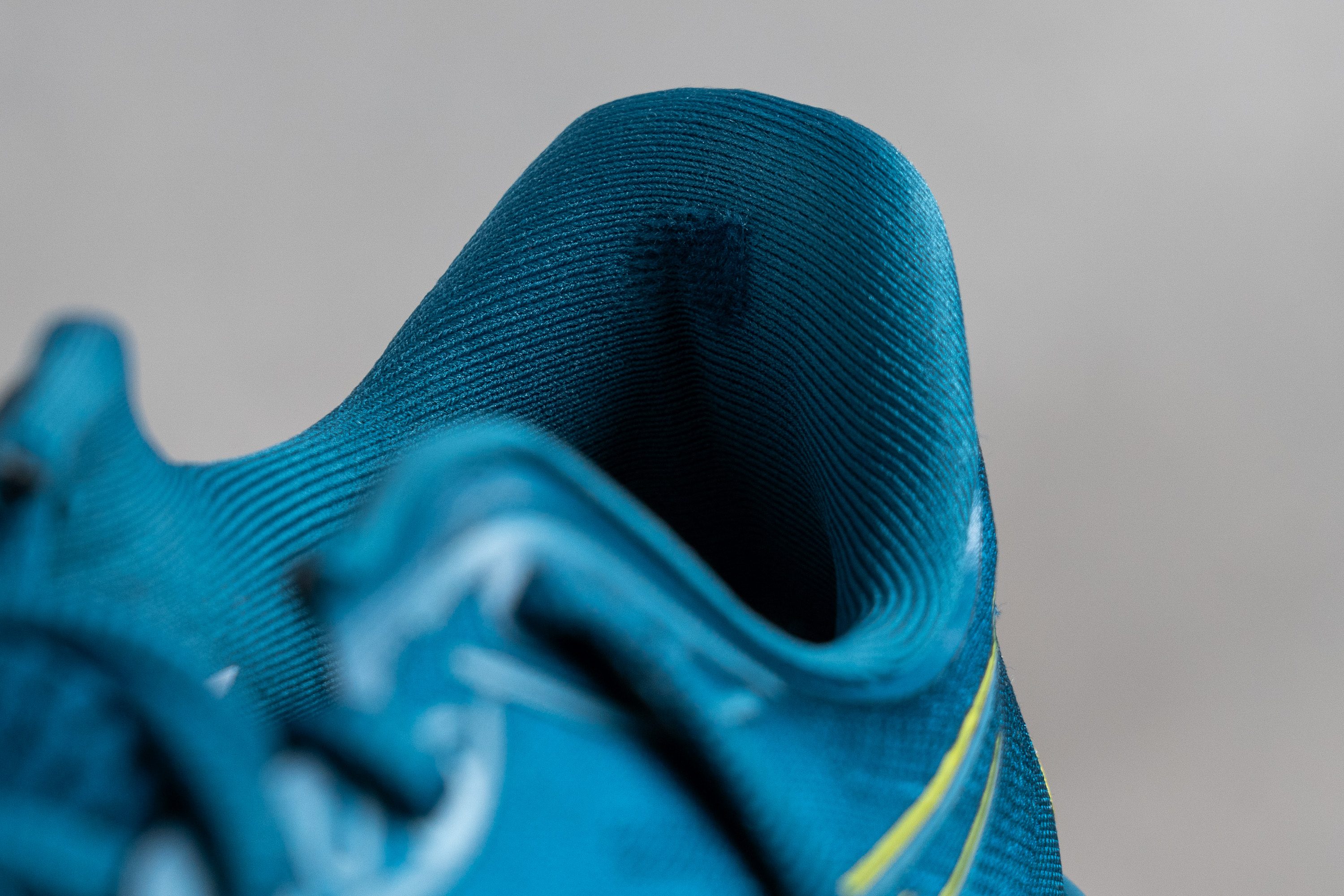
| Gel Cumulus 26 | 5 |
| Average | 3.4 |
Outsole hardness
Moving to the outsole, there's quite a bit to discuss here. Instead of the typical rubber, ASICS has opted for a rubberized EVA called FLUIDRIDE, which is a surprise to us. Simply put—imagine a tougher foam or a softer rubber. It's a blend designed to find a balance between both cushioning and durability, which is why we got a super-low 54.9 HC result in our test.

This approach differs from the norm, though brands like Hoka have previously adopted this strategy with success. However, while we experienced good grip on roads, we think that this outsole it's not the best for everything else like easy trails or gravel roads in terms of durability and traction.
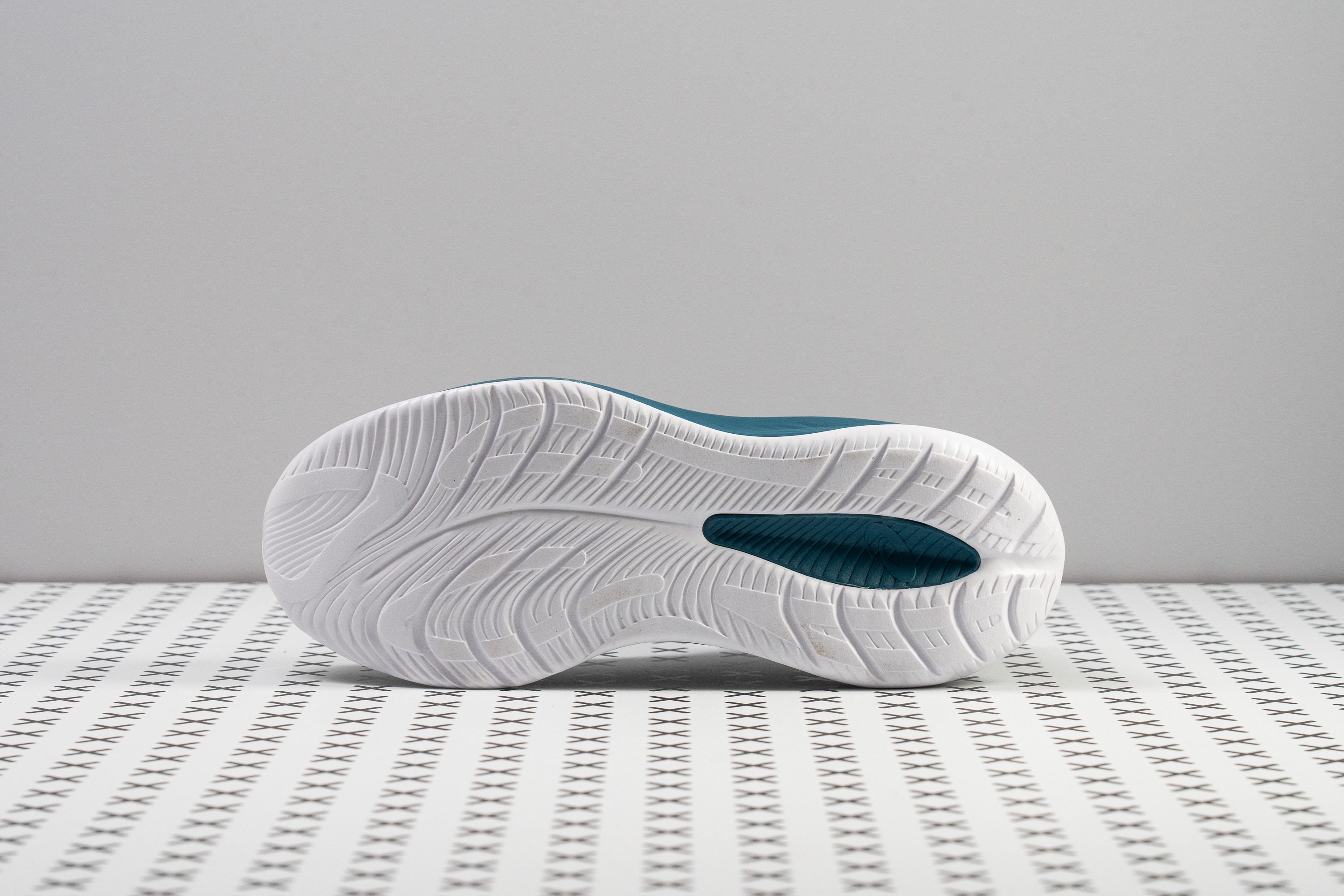
| Gel Cumulus 26 | 54.9 HC |
| Average | 79.2 HC |
Outsole durability
When we encountered the surprisingly low hardness result of the outsole, our curiosity led us to test the rubberized EVA with the Dremel, and it confirmed our expectations.
After completing the test, we observed a significant 2.4-mm indentation—a considerable amount that might seem alarming compared to other road daily trainers.
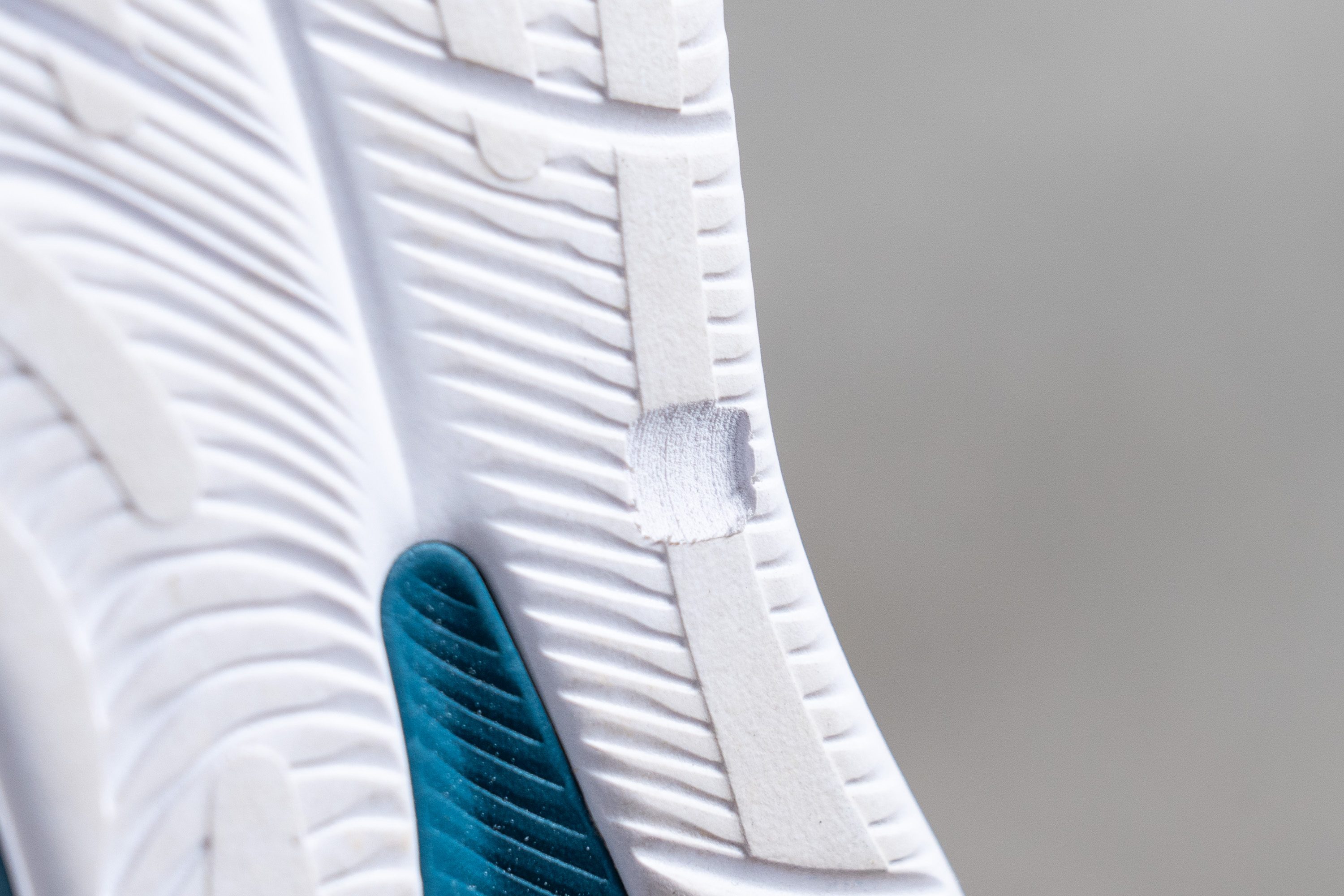
| Gel Cumulus 26 | 2.4 mm |
| Average | 1.1 mm |
Outsole thickness
However, the Cumulus 26 is not your average daily trainer. Unlike typical models that include about 3 mm of rubber, this shoe boasts 6.0 mm of the white, rubberized EVA we analysed in our previous tests.
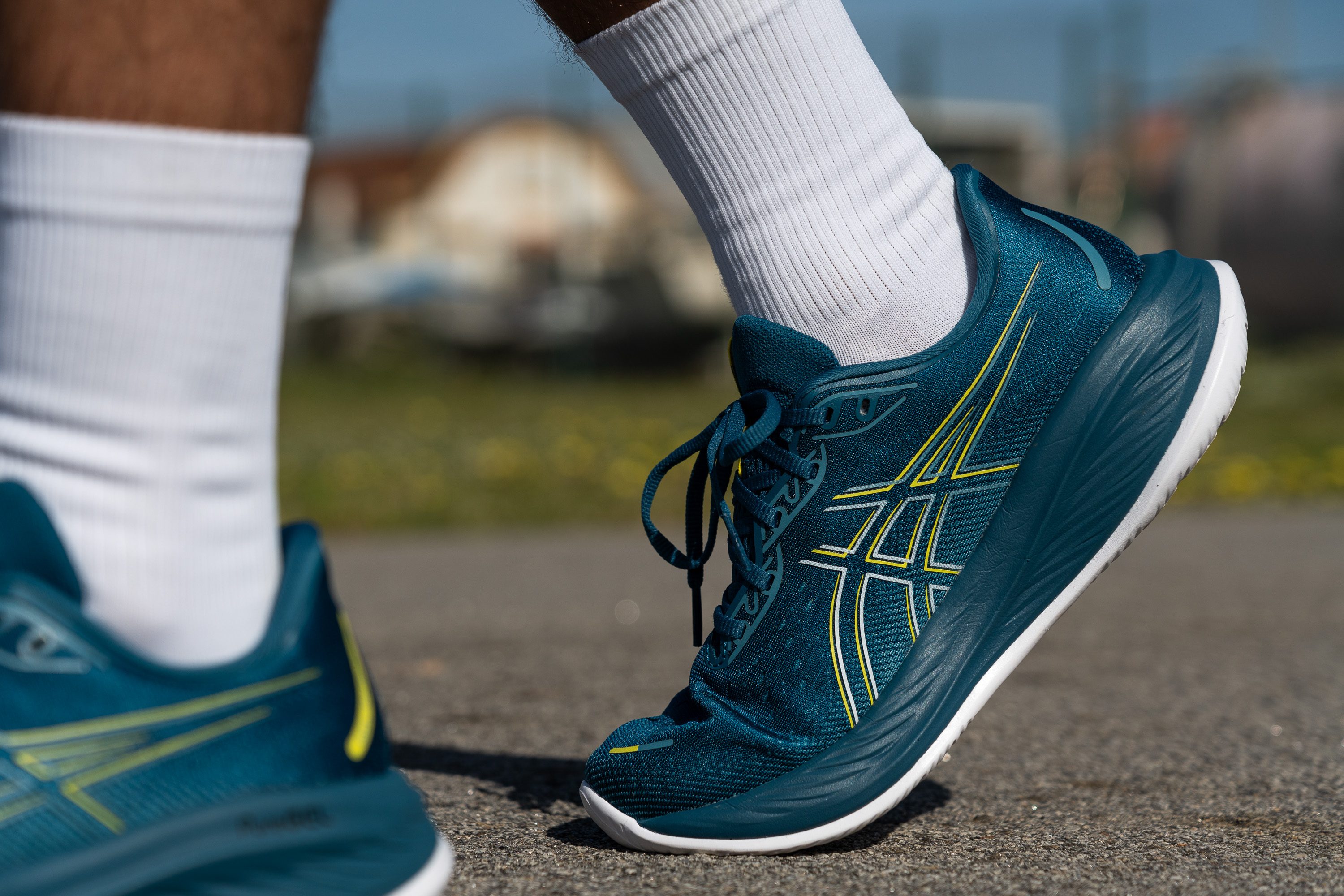
That's why, despite the poor results in our previous durability test, we're not really concerned. While the lifespan of this shoe may not match those with extremely hard rubbers and thick outsoles, it should still provide sufficient durability to handle decent mileage.
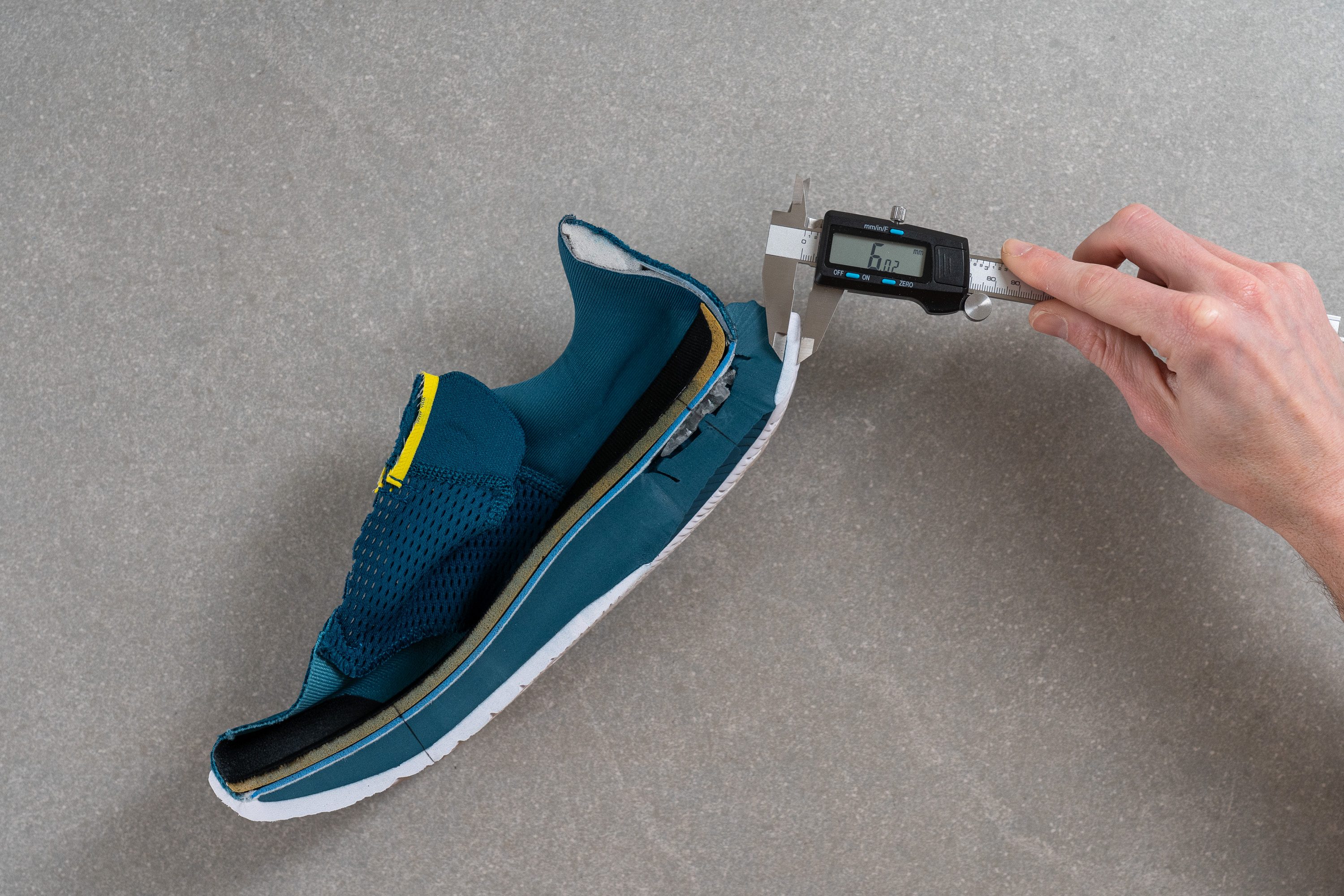
| Gel Cumulus 26 | 6.0 mm |
| Average | 3.2 mm |
Misc
Insole thickness
The Ortholite X-30 insole measures 5.1mm, which is slightly above average in thickness, yet its presence is subtle. And we found it delivers outstanding immediate comfort right from the first step.
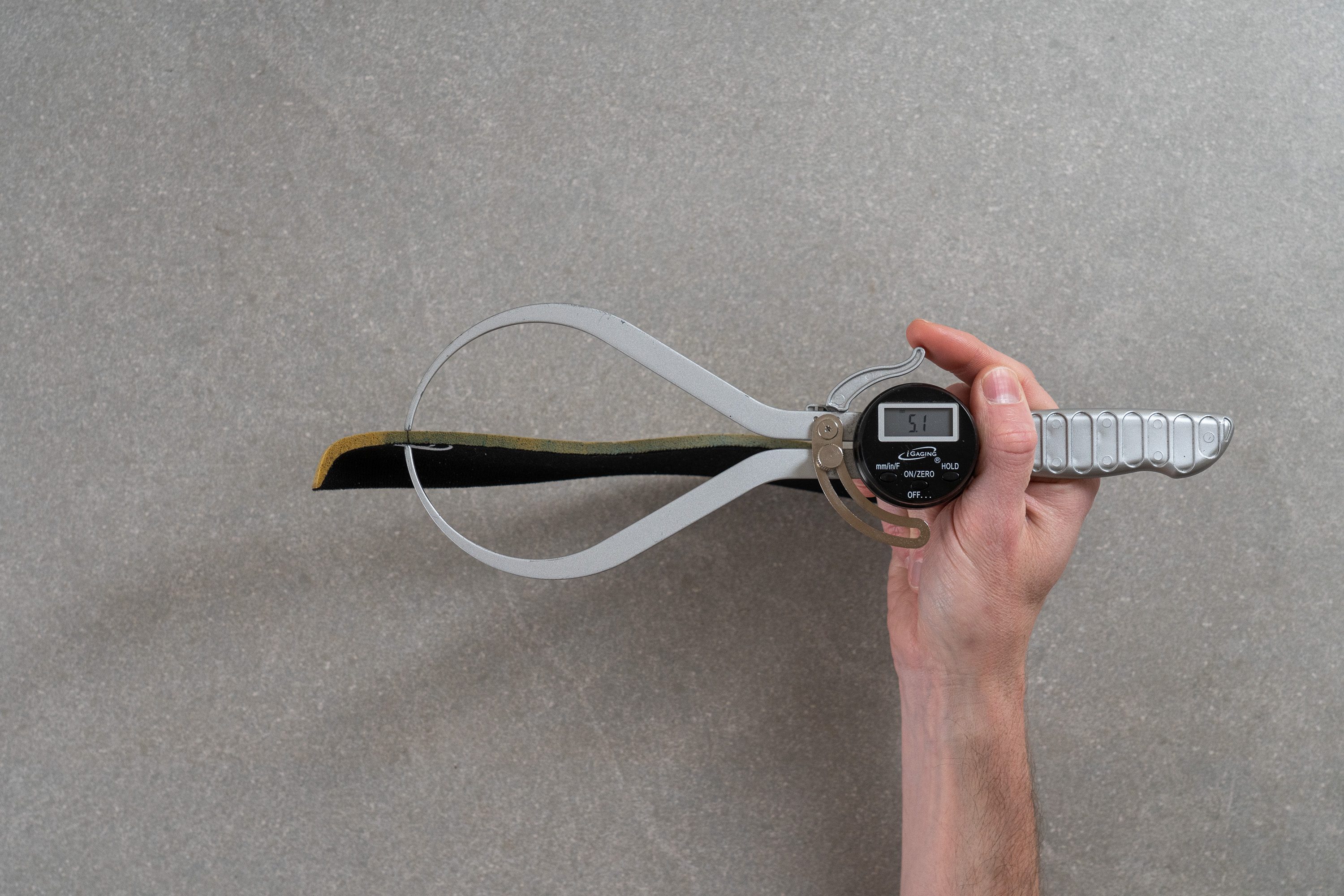
| Gel Cumulus 26 | 5.1 mm |
| Average | 4.5 mm |
Removable insole
The Ortholite X-30 outsole is removable, allowing you to clean it or replace it with a different footbed as needed.
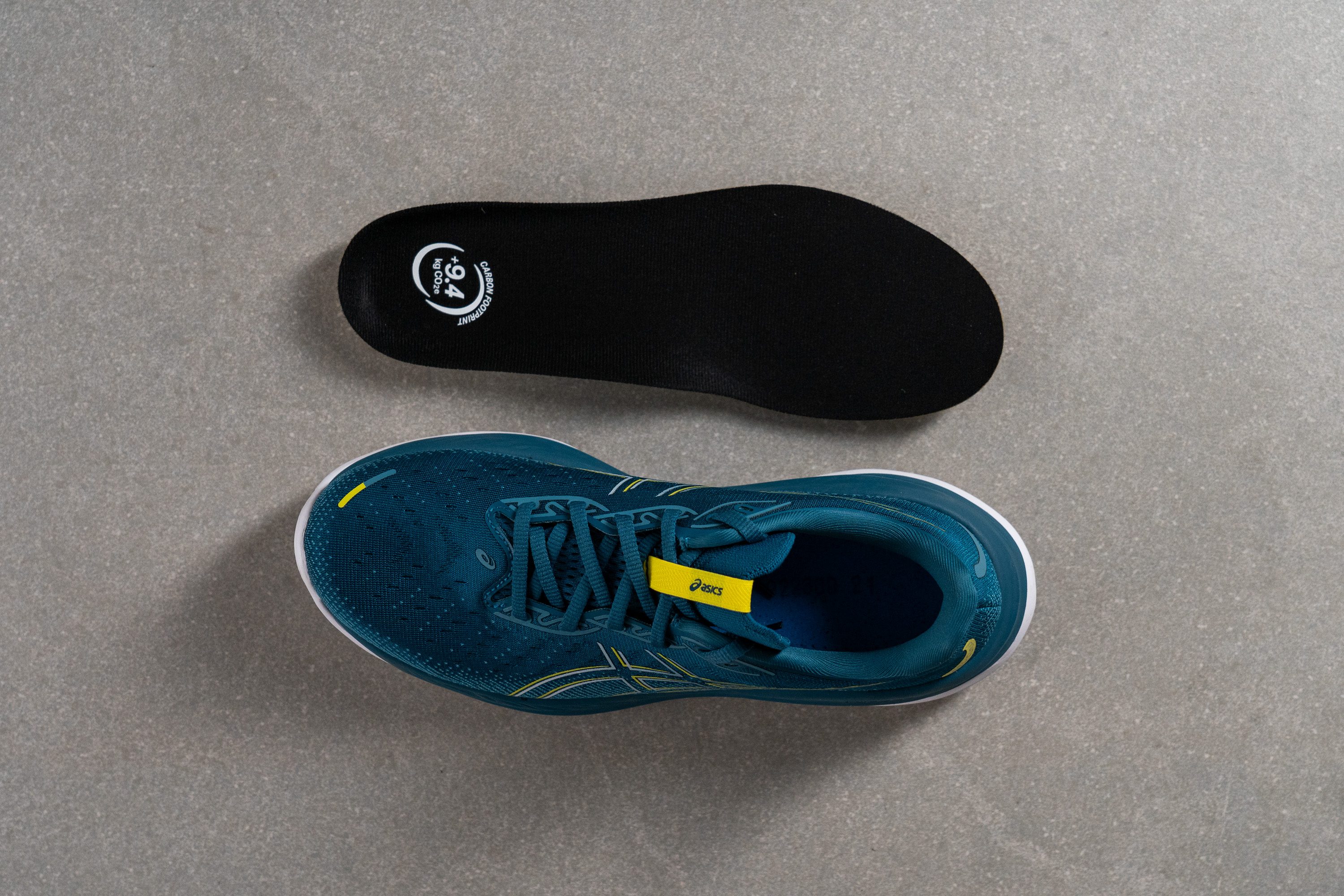
| Gel Cumulus 26 | Yes |
Midsole softness in cold (%)
EVA foams generally underperform in cold temperatures, which is a key reason why Olefin co-polymers are blended into the material in the FF Blast+ foam.
This combination prevents the foam from becoming like a brick in freezing conditions. In our 20-minute freezer challenge, FF Blast+ maintained a satisfactory performance of 24.2%.
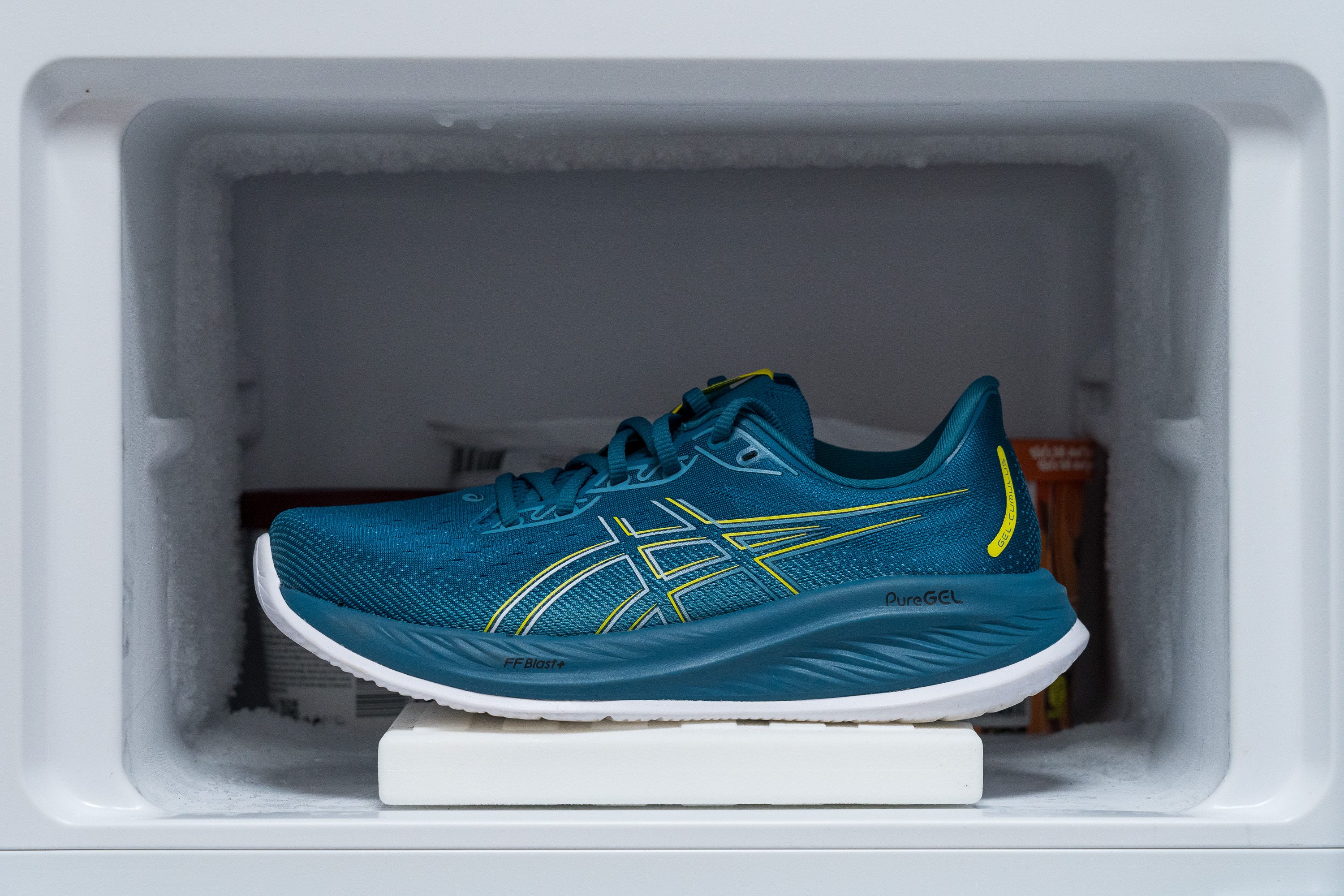
| Gel Cumulus 26 | 24% |
| Average | 24% |
Reflective elements
Unfortunately, we discovered that ASICS chose not to include reflective elements in the new Cumulus.
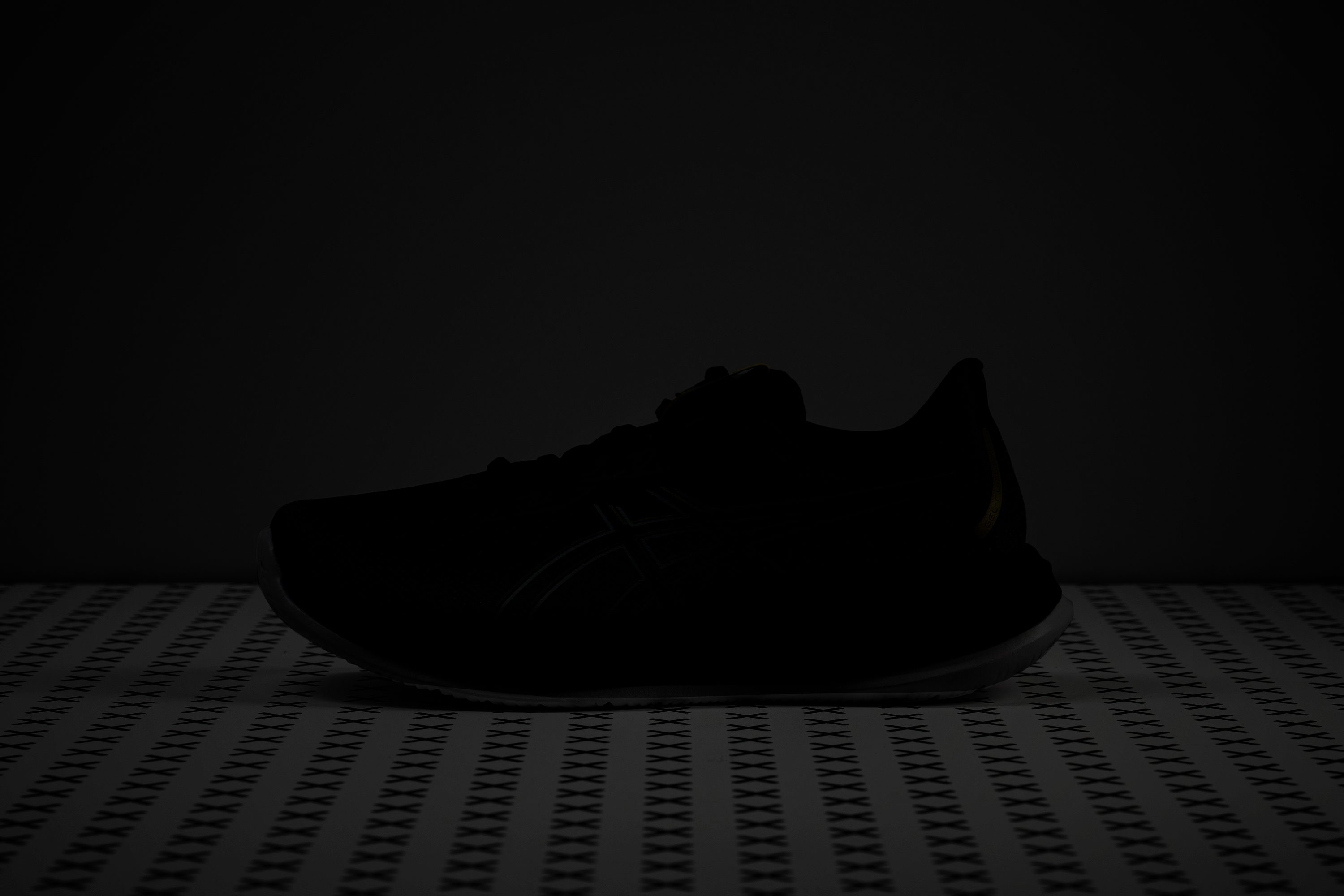
| Gel Cumulus 26 | No |
Tongue padding
We've discovered that one of the improvements in the Cumulus from previous versions is its reduced weight. However, as with everything in life, there are trade-offs. The most significant one here is the tongue padding, which is about half as thick as in version 25.
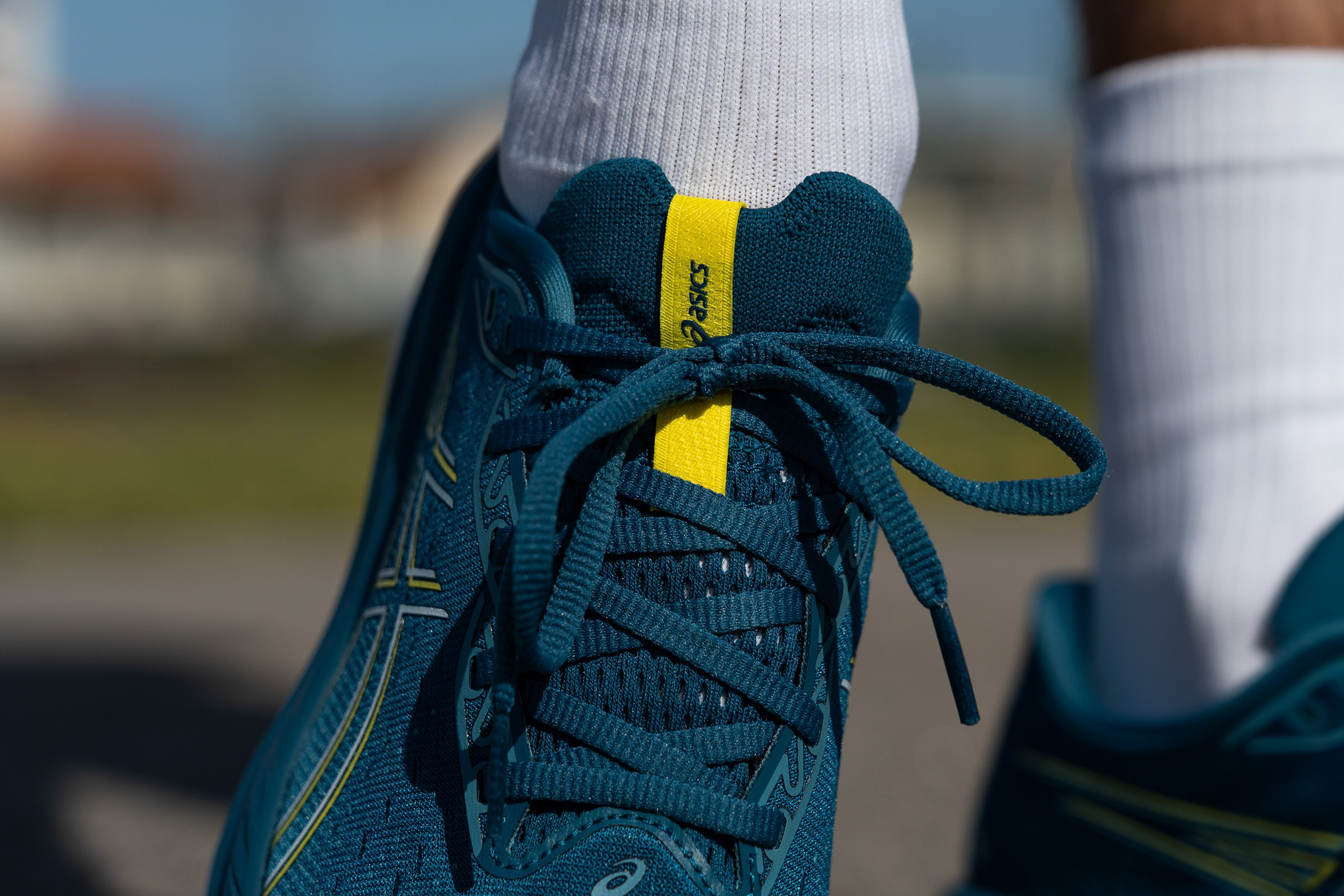
Is 3.5 mm enough? For us, the trade-off feels right. Yet for those who prefer shoes with plush uppers, we think it probably isn't, and they might find it wise to consider a shoe like the Brooks Ghost Max, which has an 8.5-mm thick tongue.
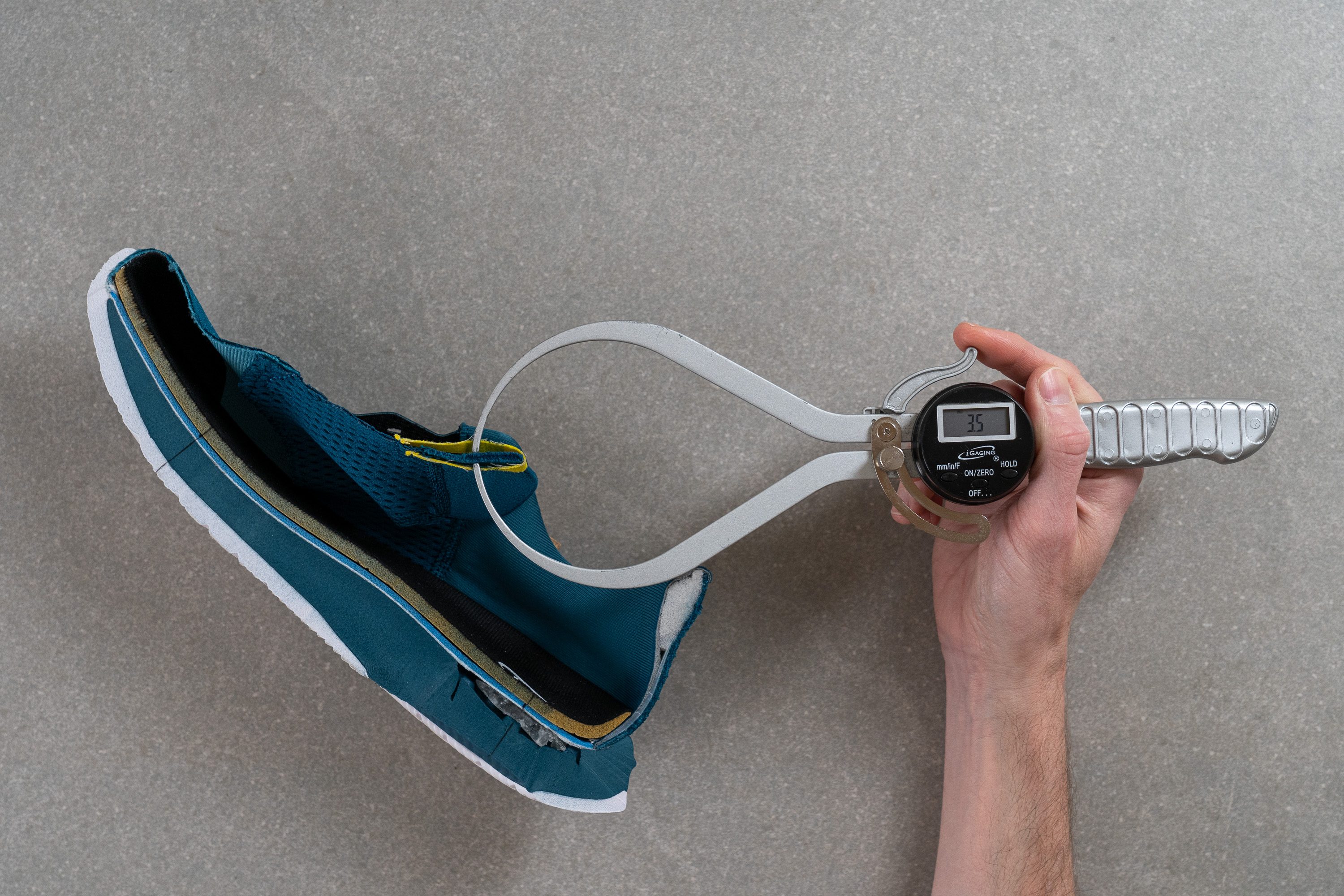
| Gel Cumulus 26 | 3.5 mm |
| Average | 5.7 mm |
Tongue: gusset type
We discovered that the tongue is semi-gusseted, or partially fixed to the sides—a wonderful feature in a £140 shoe that we highly value, especially during faster-paced runs.
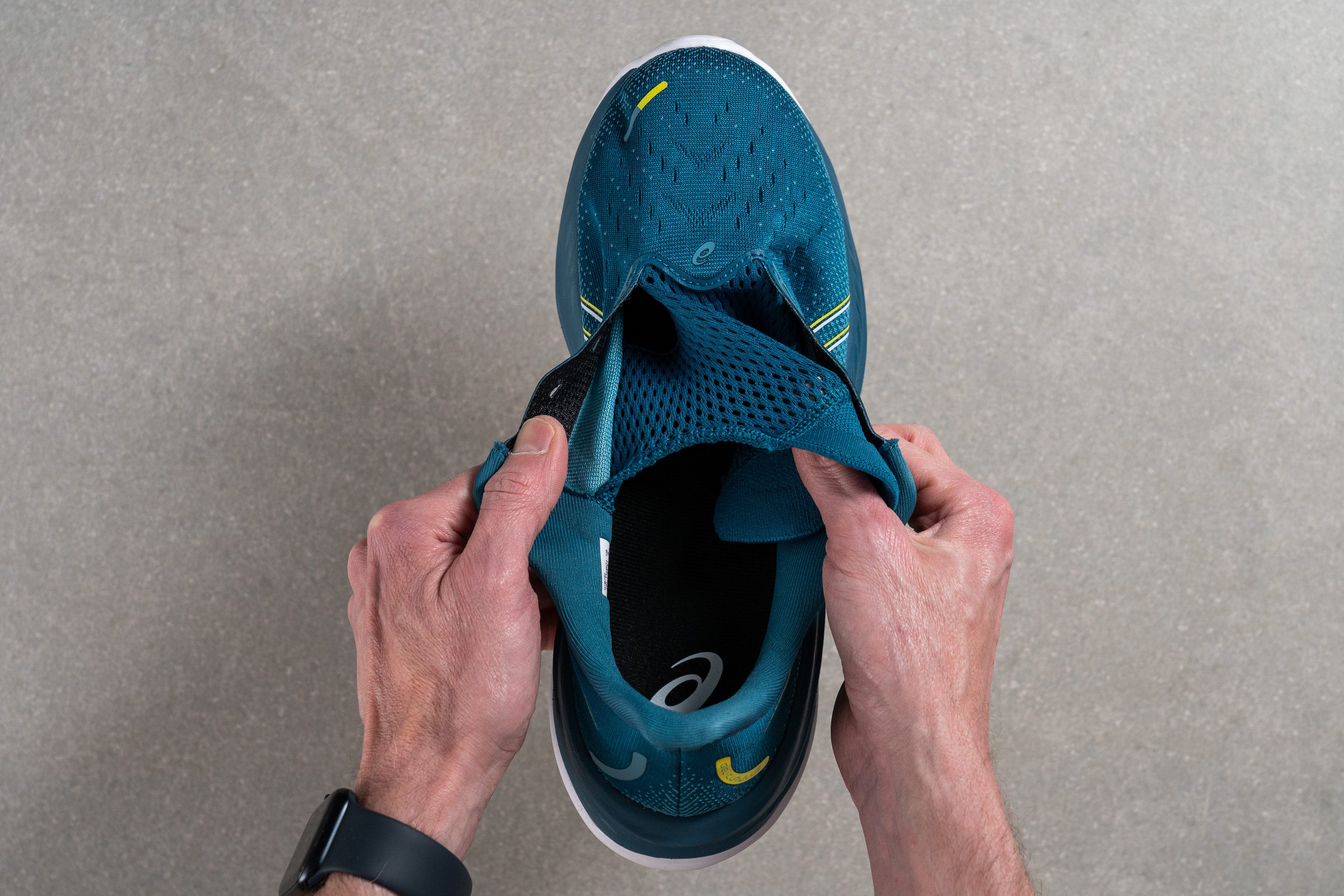
| Gel Cumulus 26 | Both sides (semi) |
Heel tab
ASICS has incorporated finger-loop heel tabs in most of its recent models—and in the Cumulus 25—but this update departs from this trend.
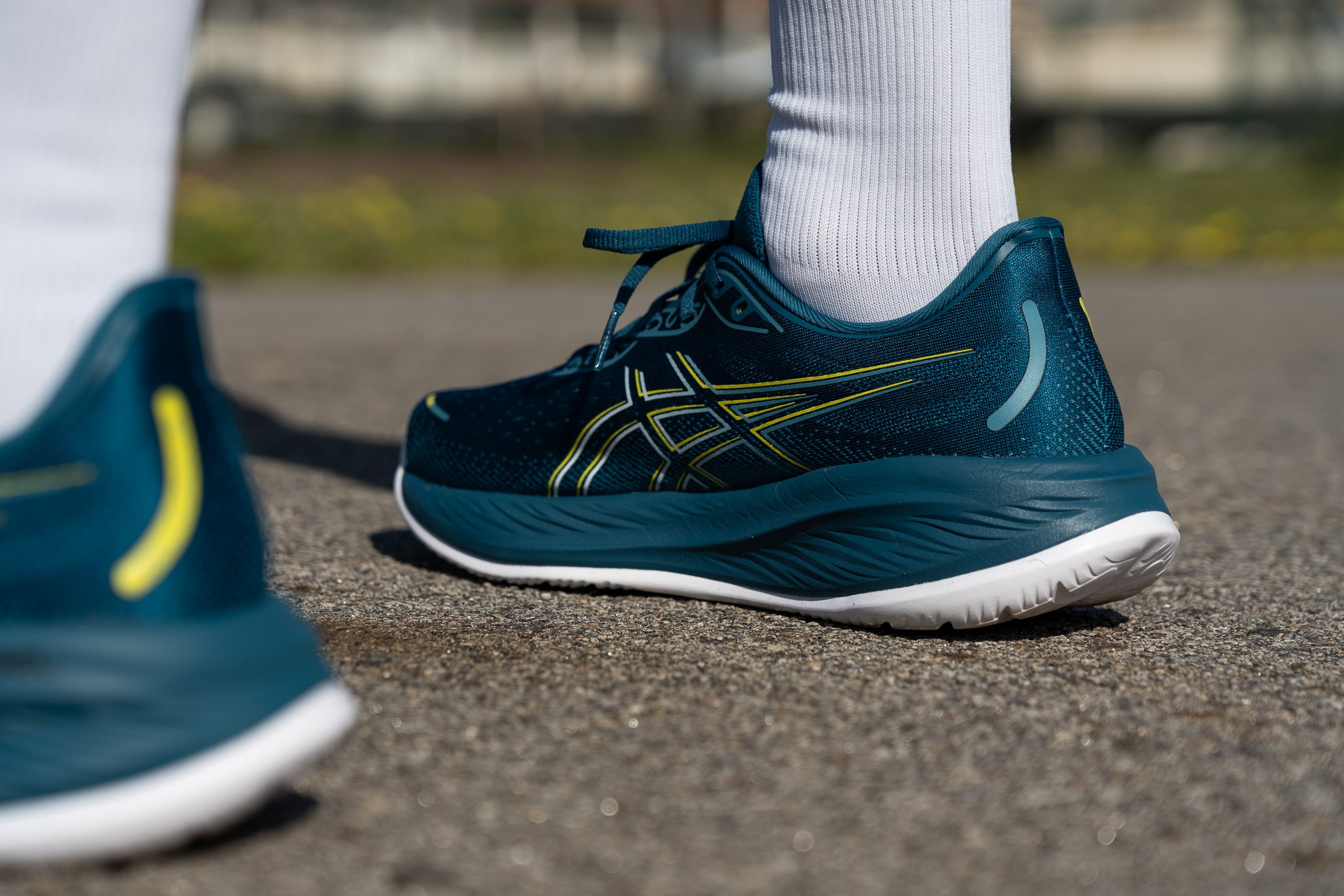
| Gel Cumulus 26 | None |

